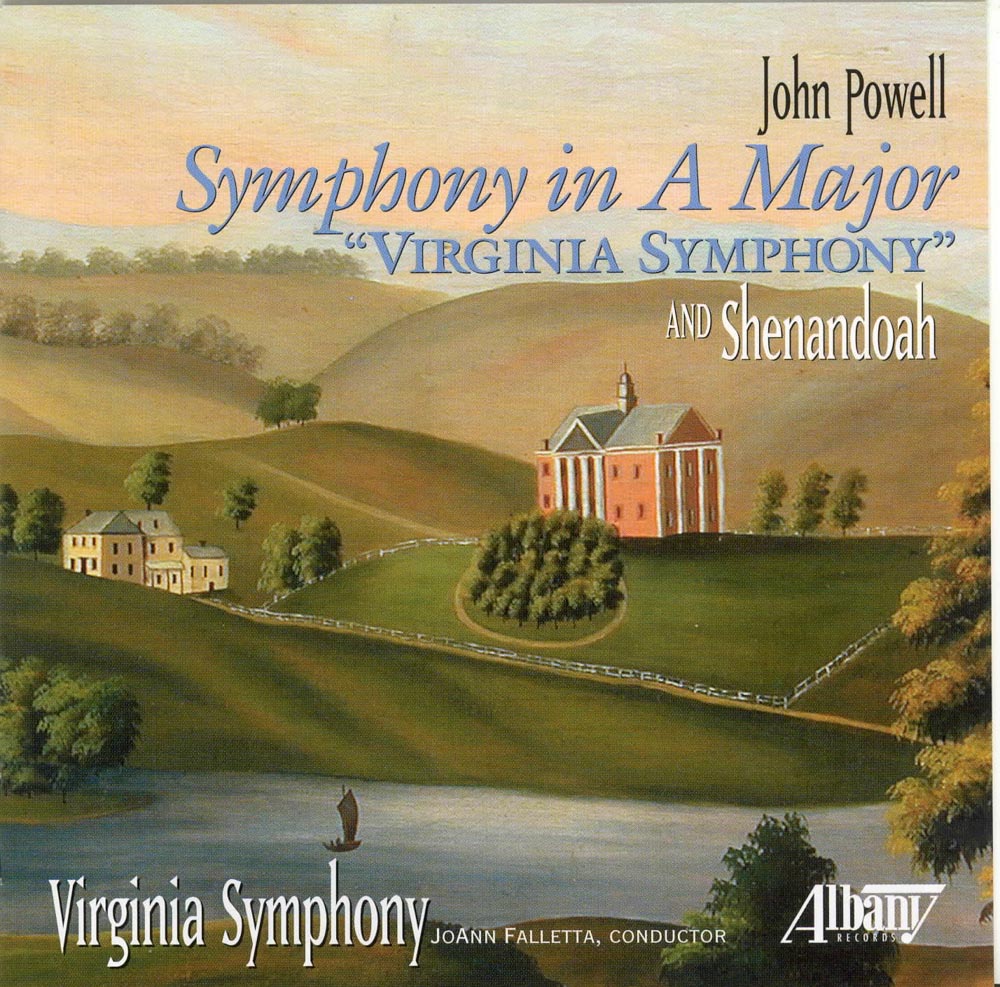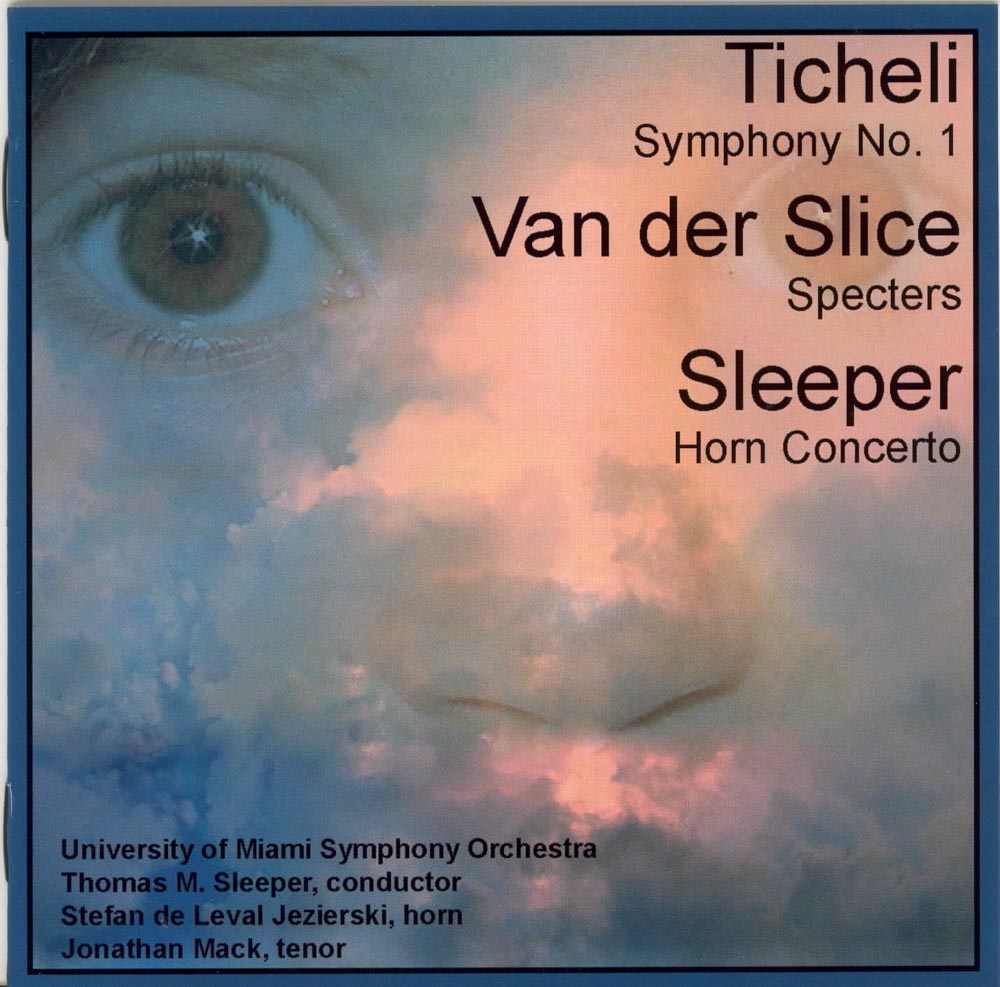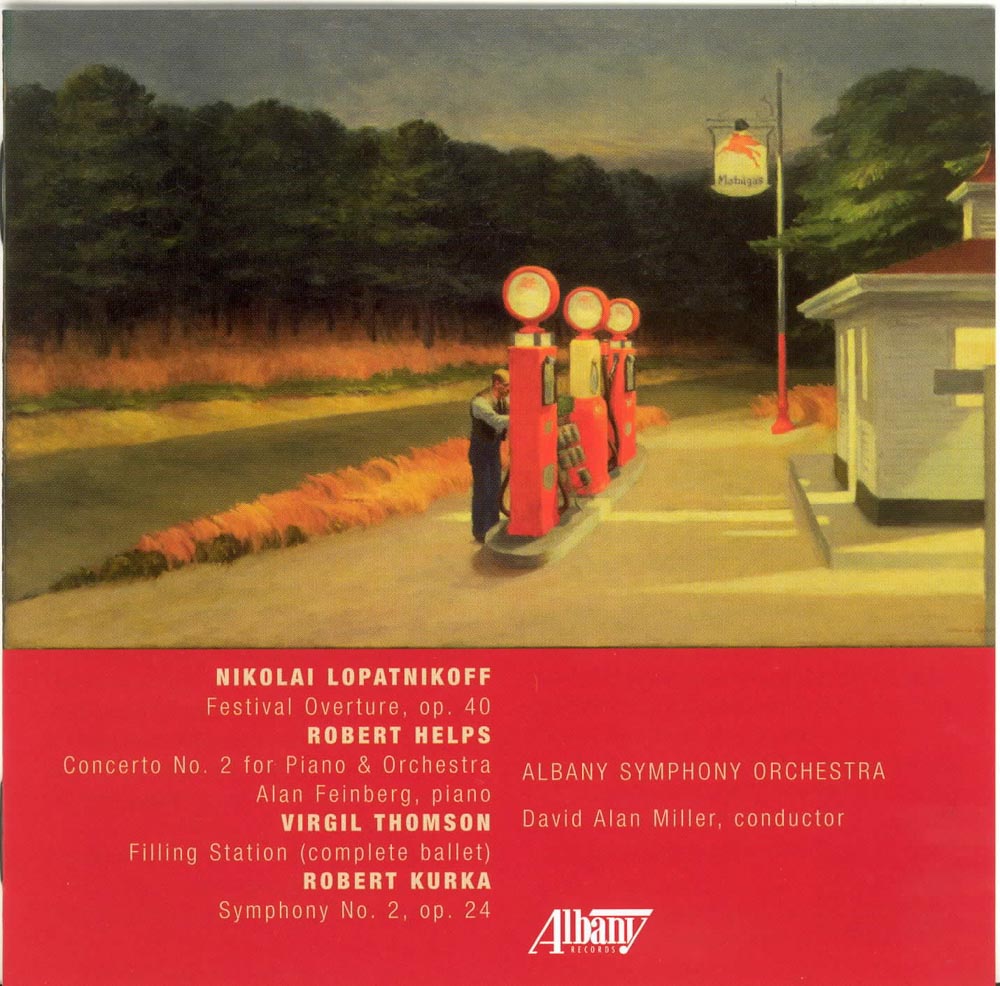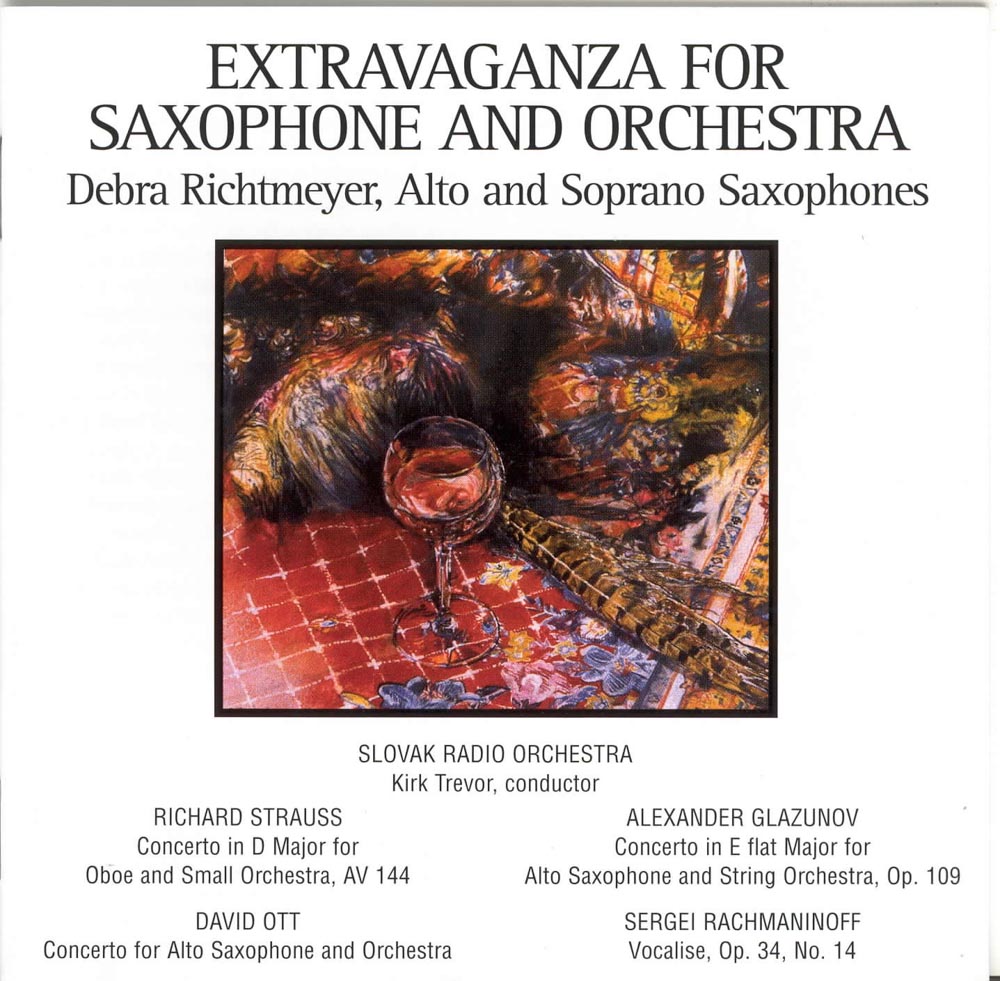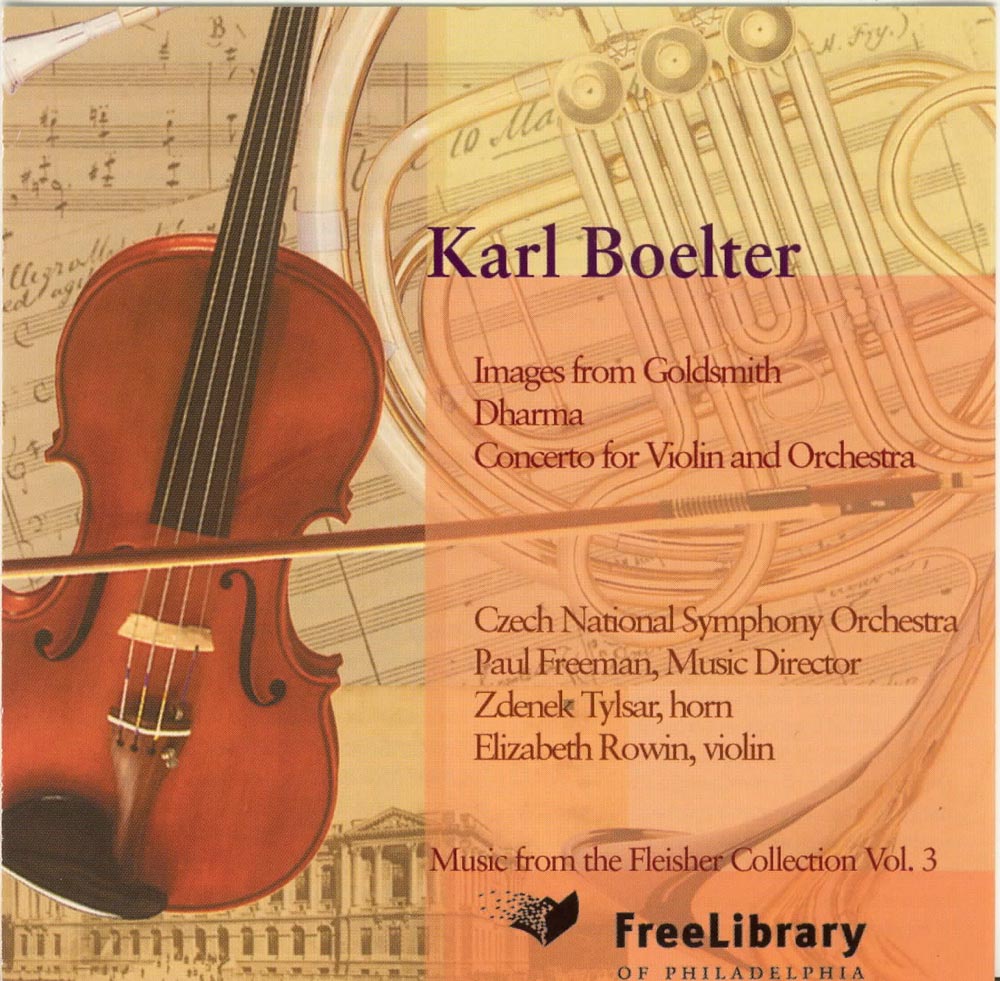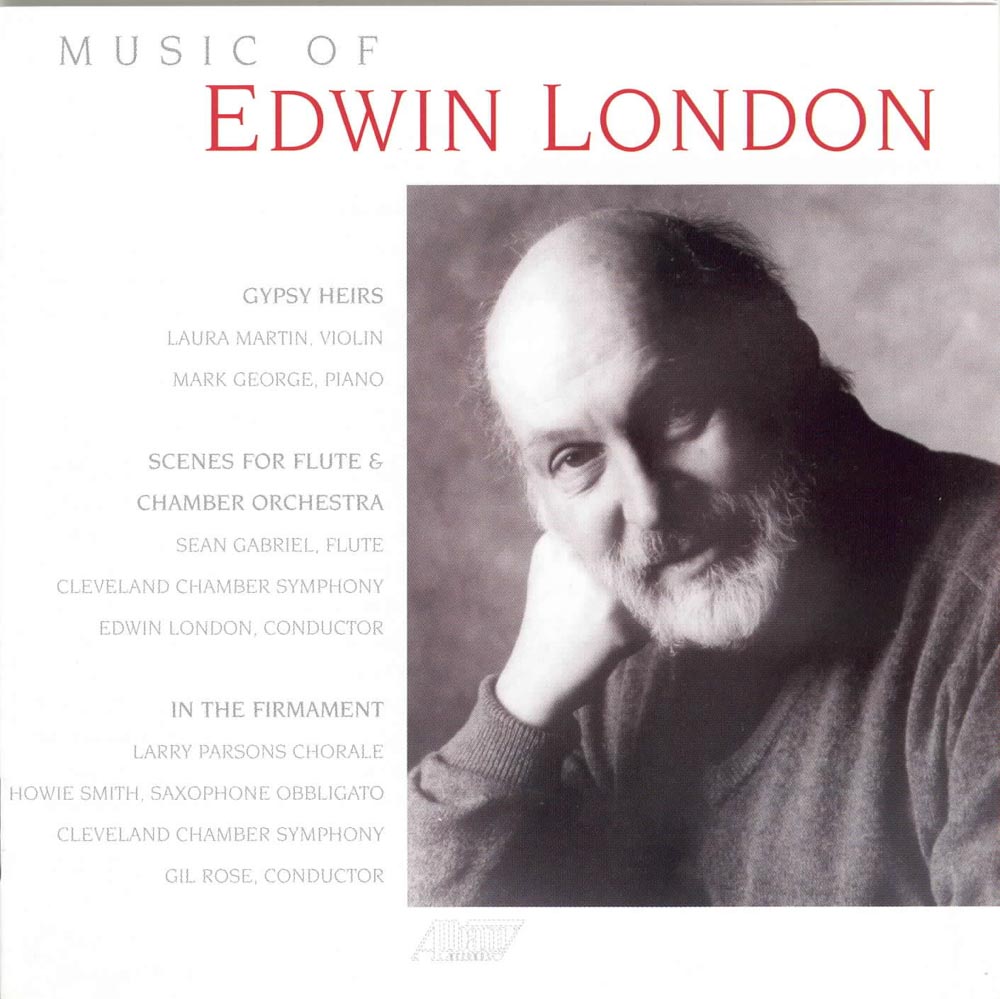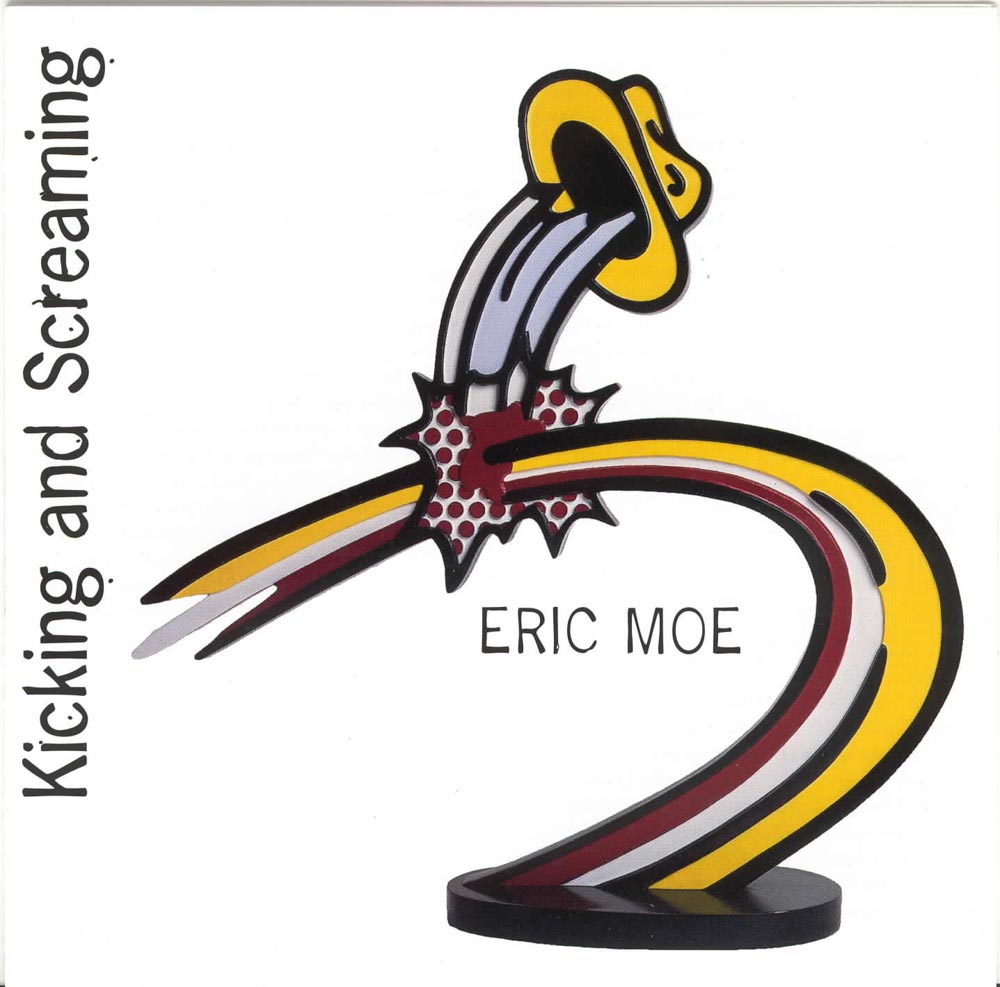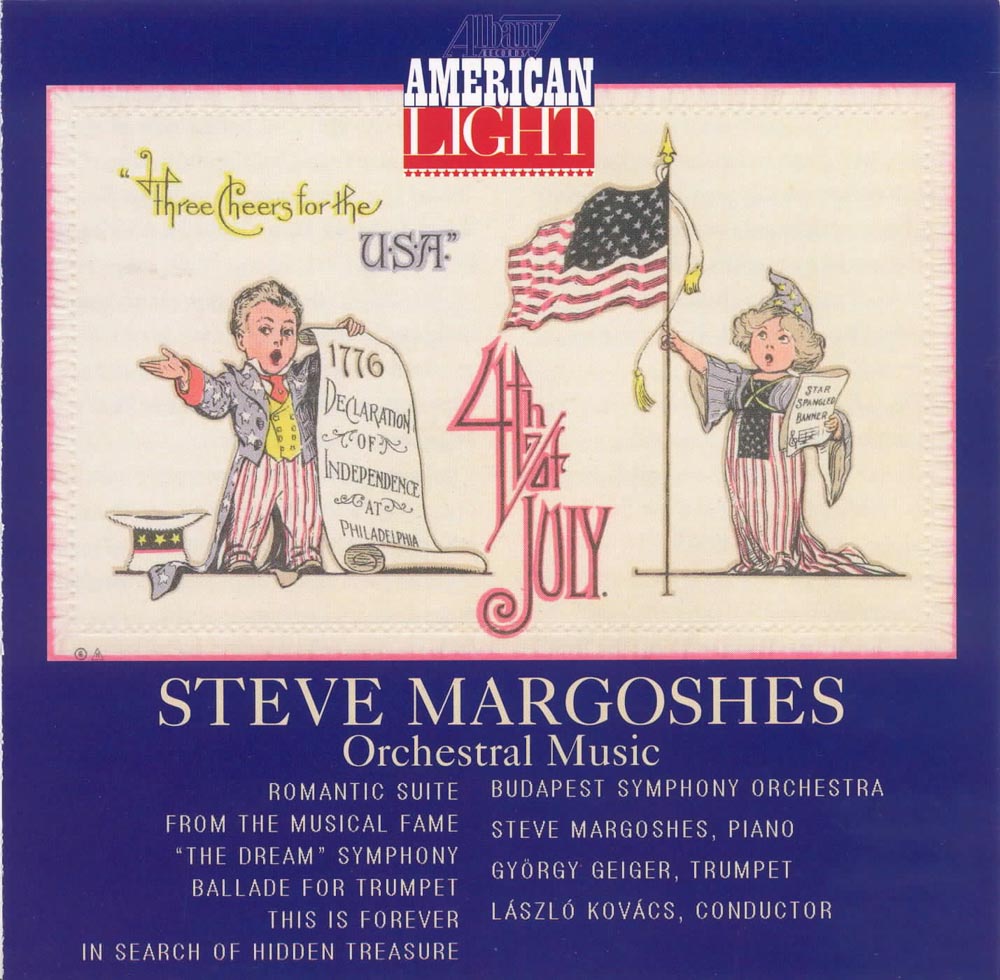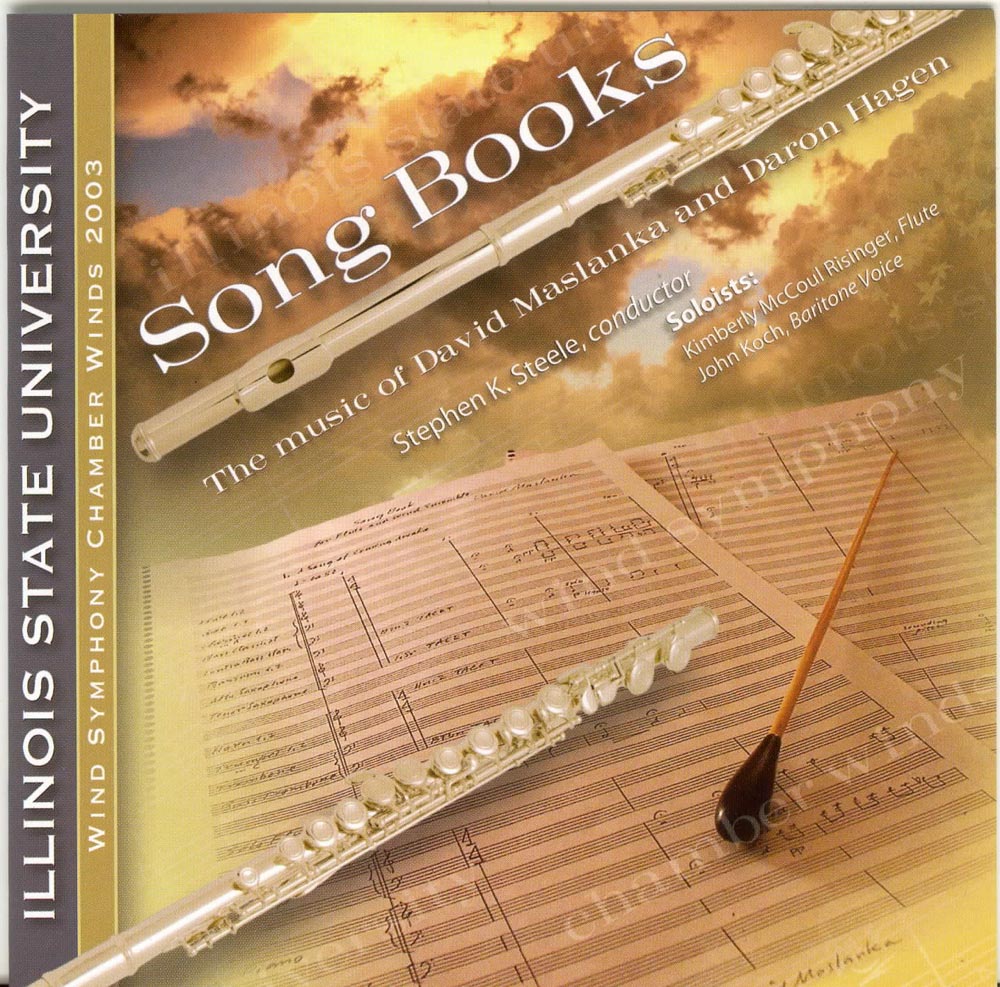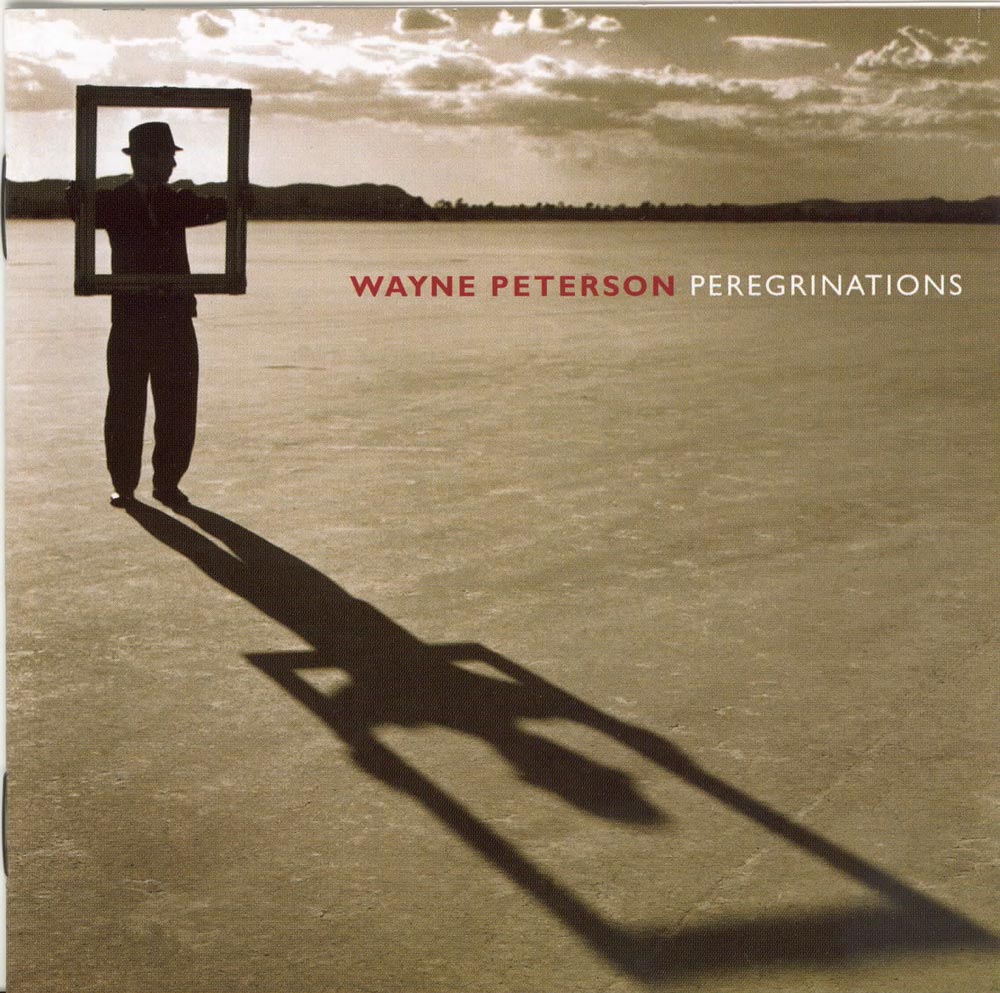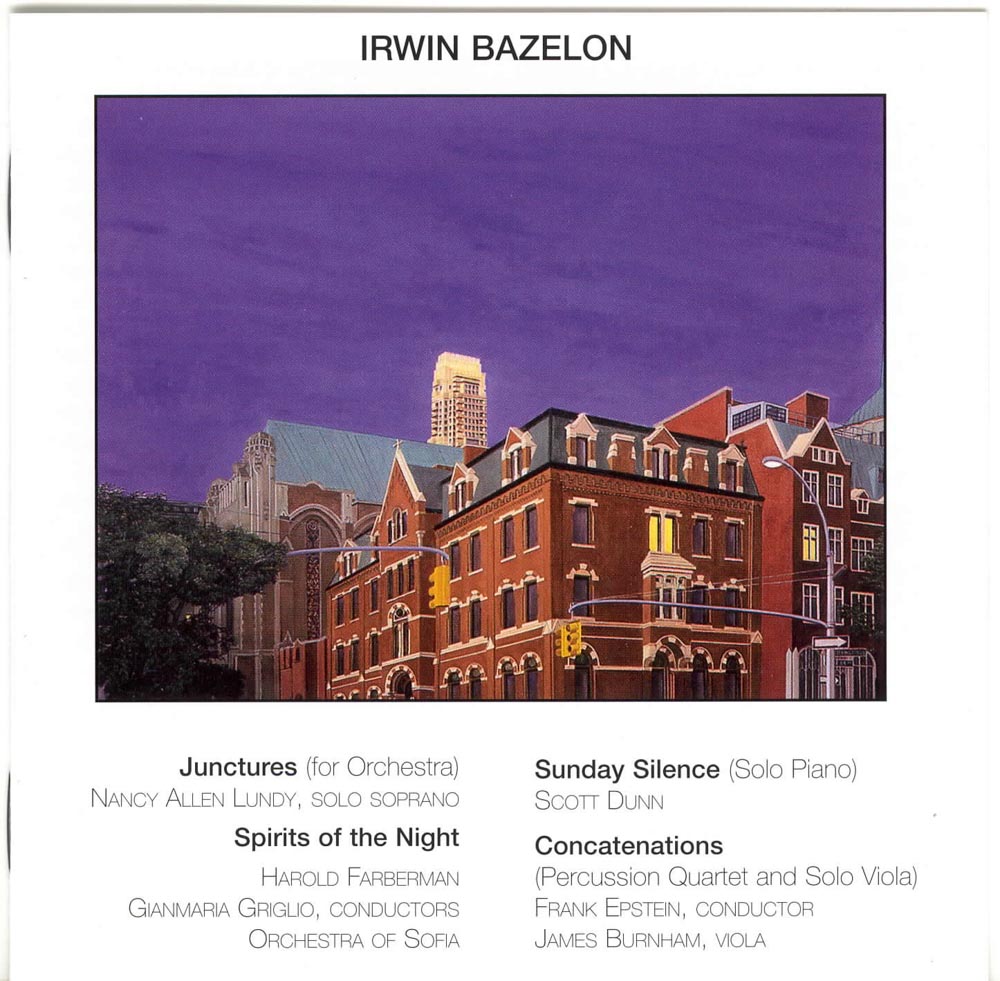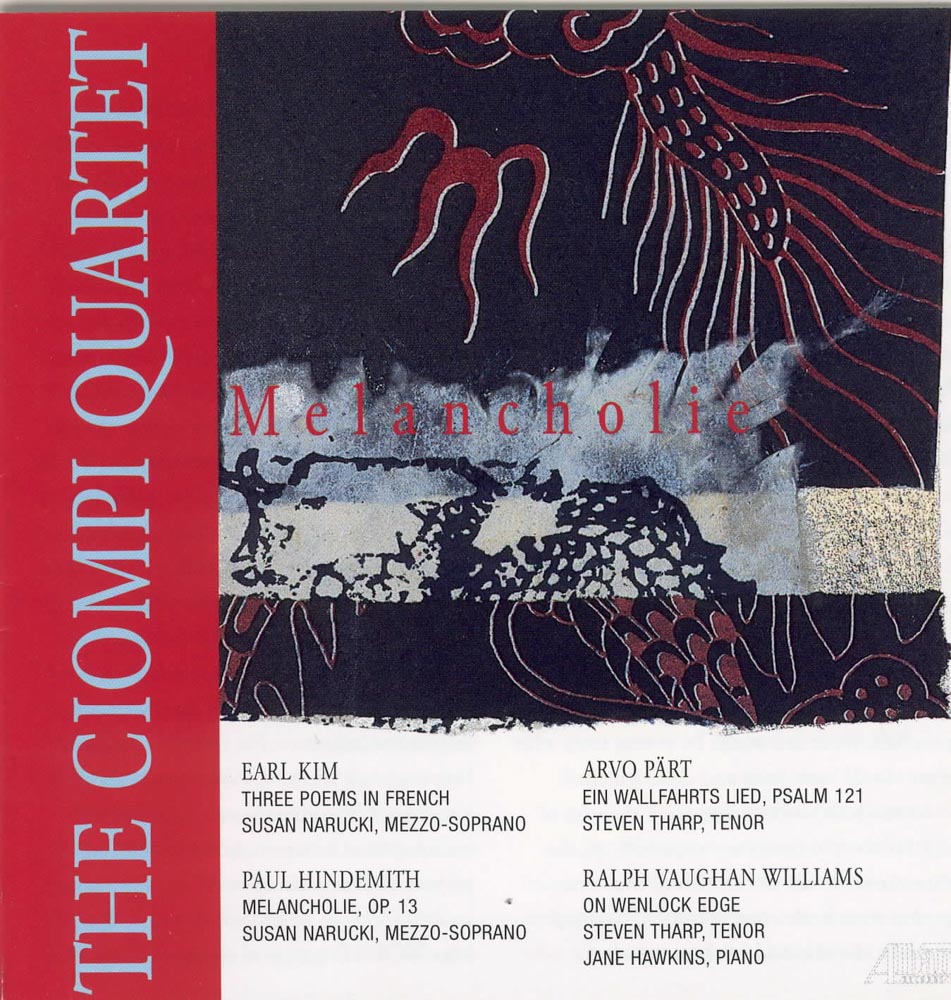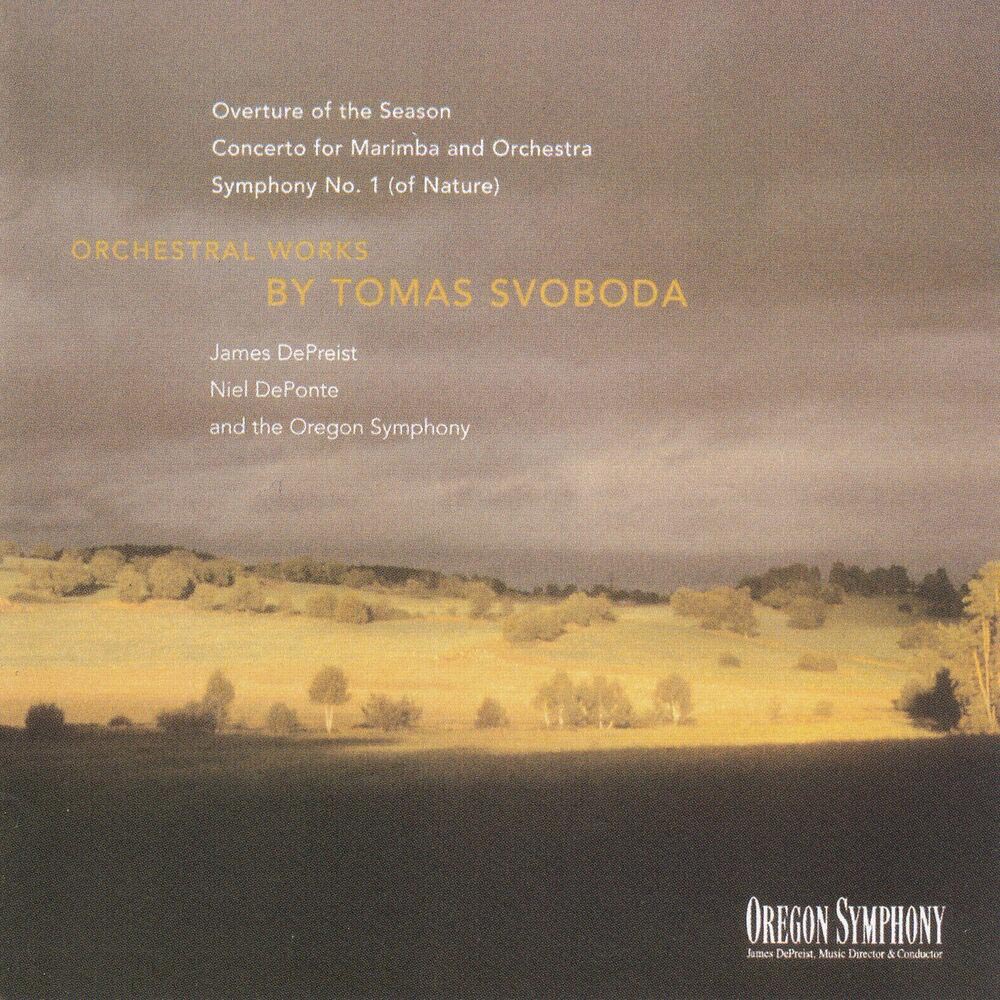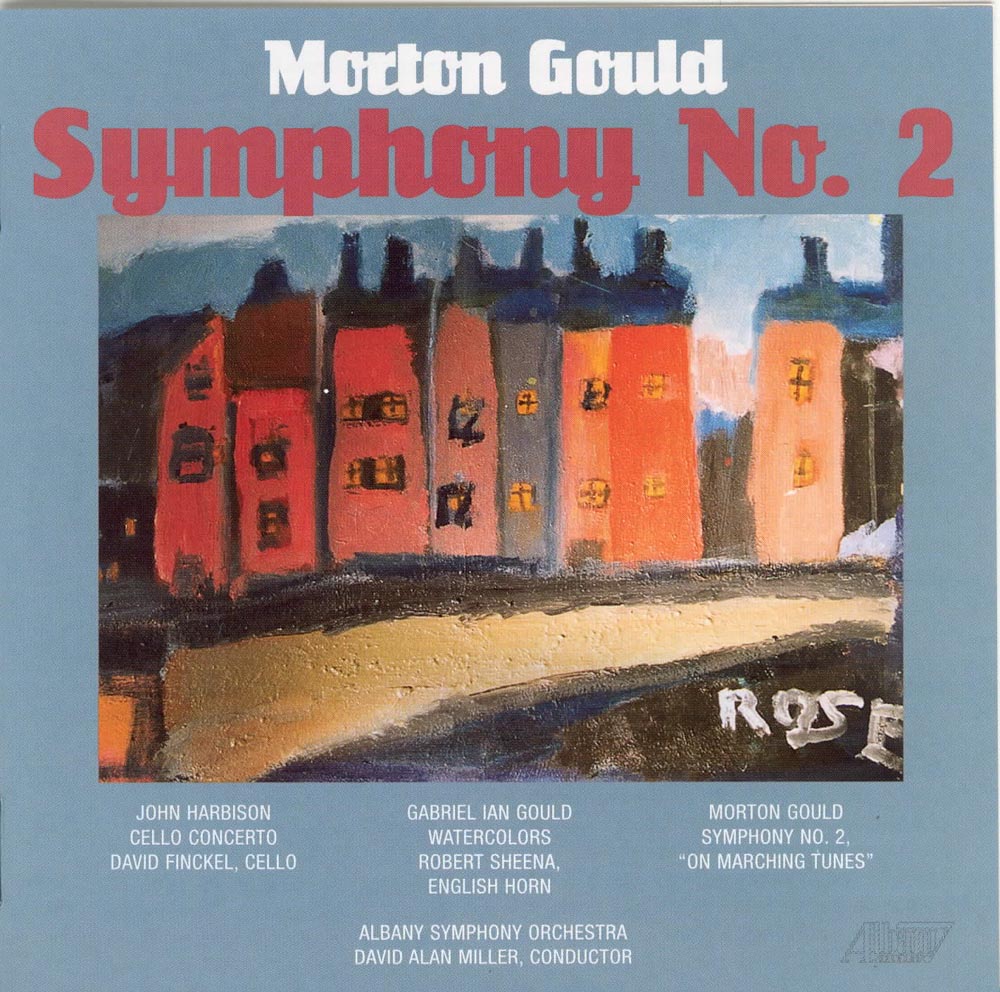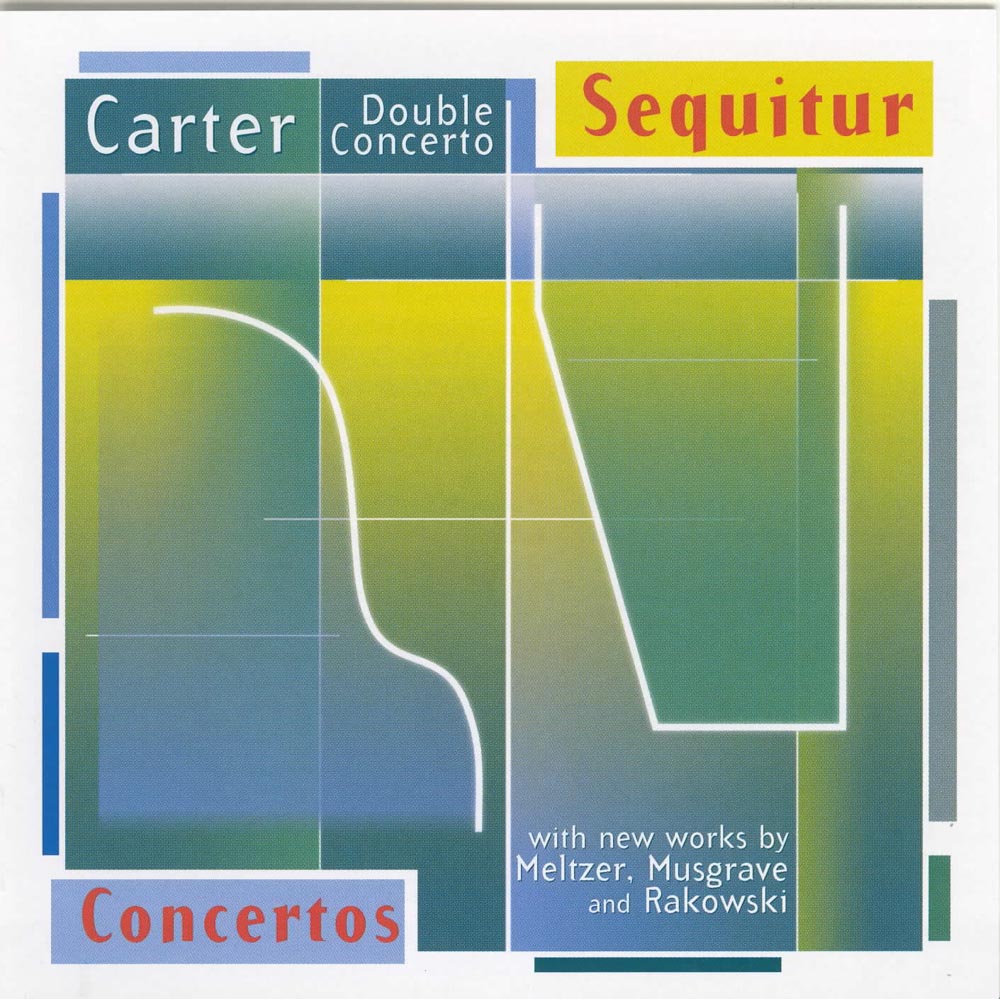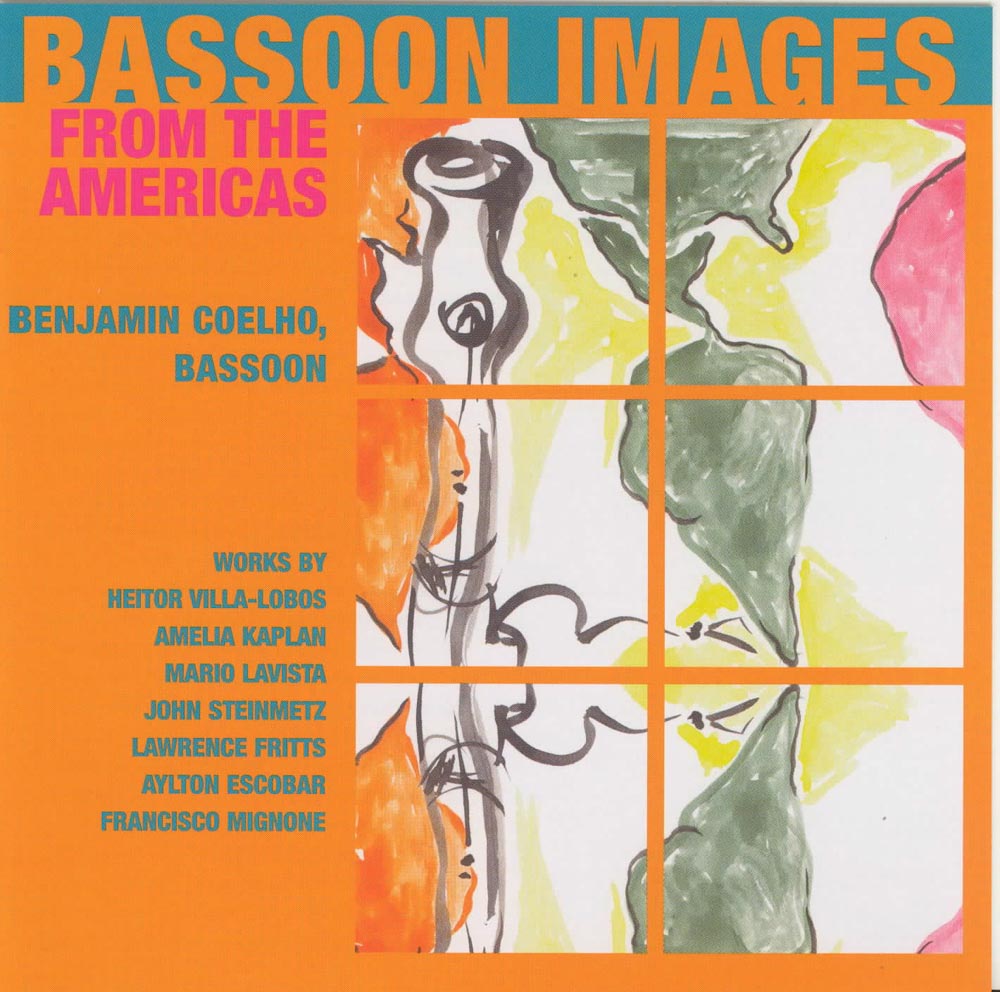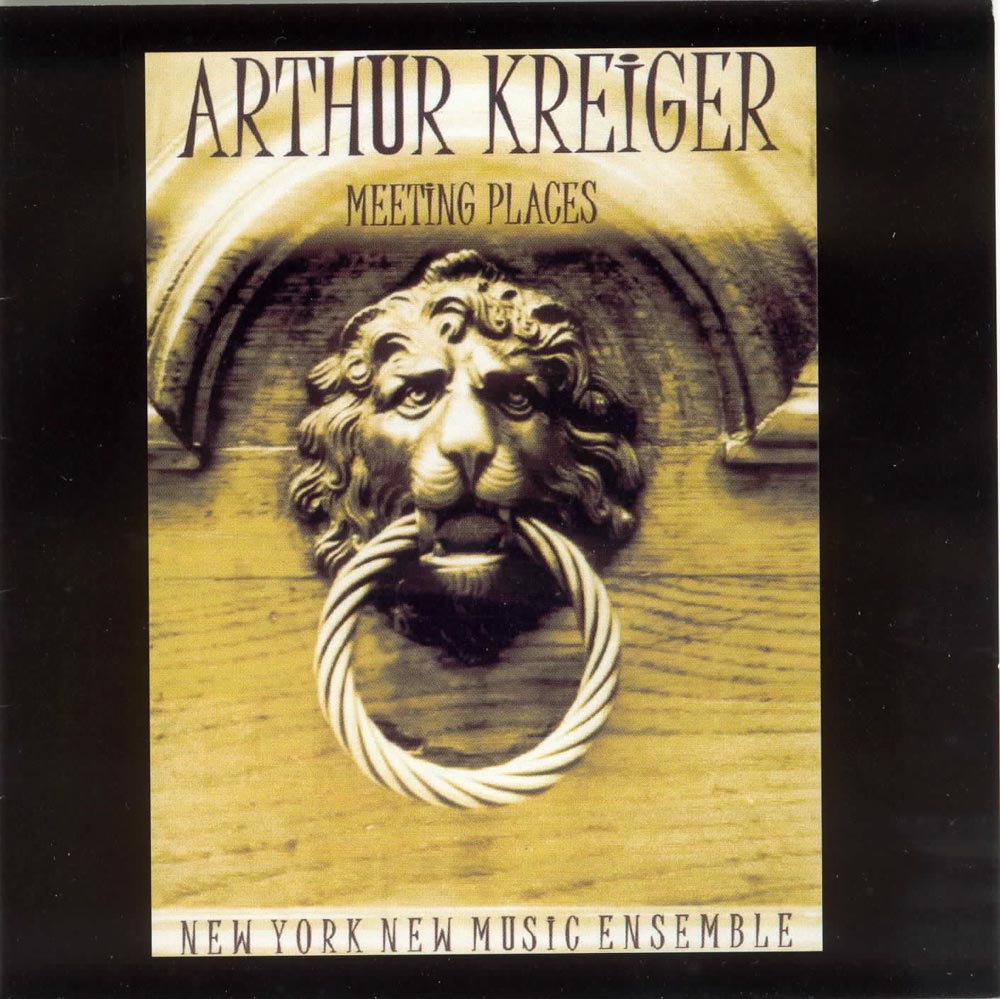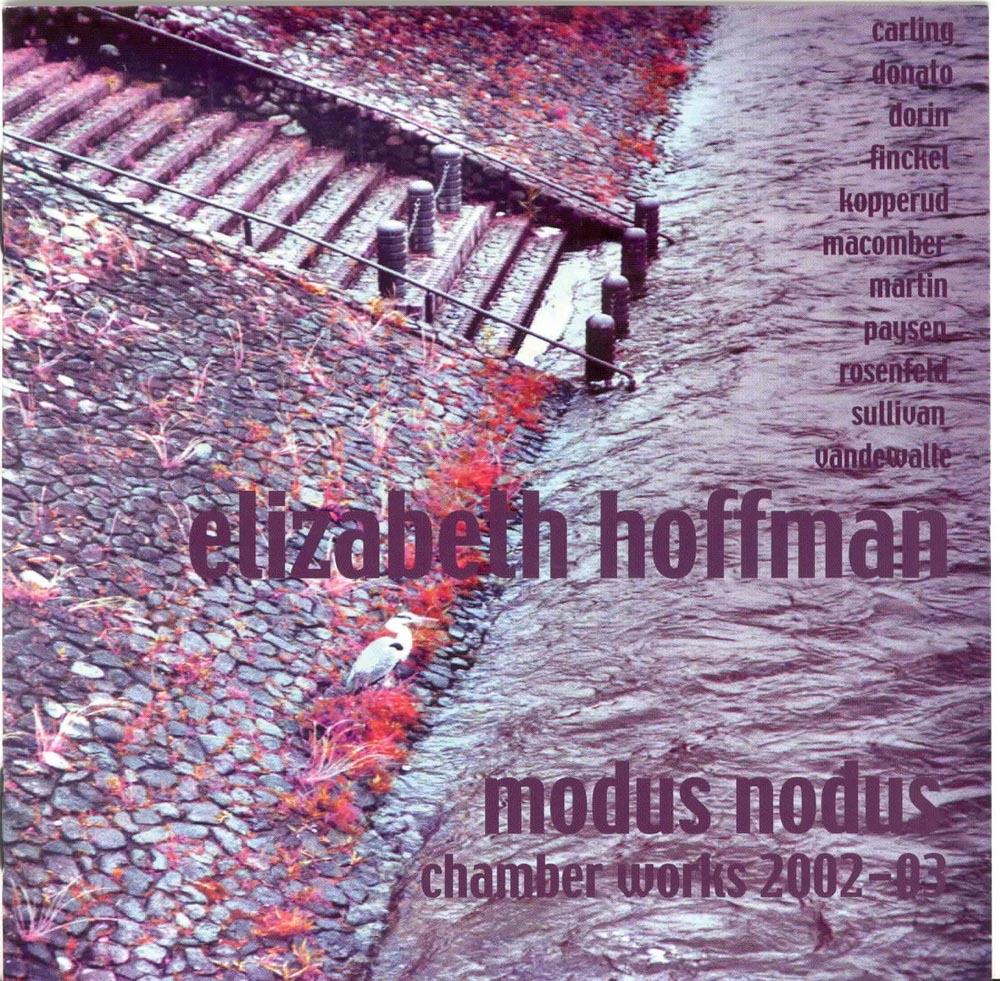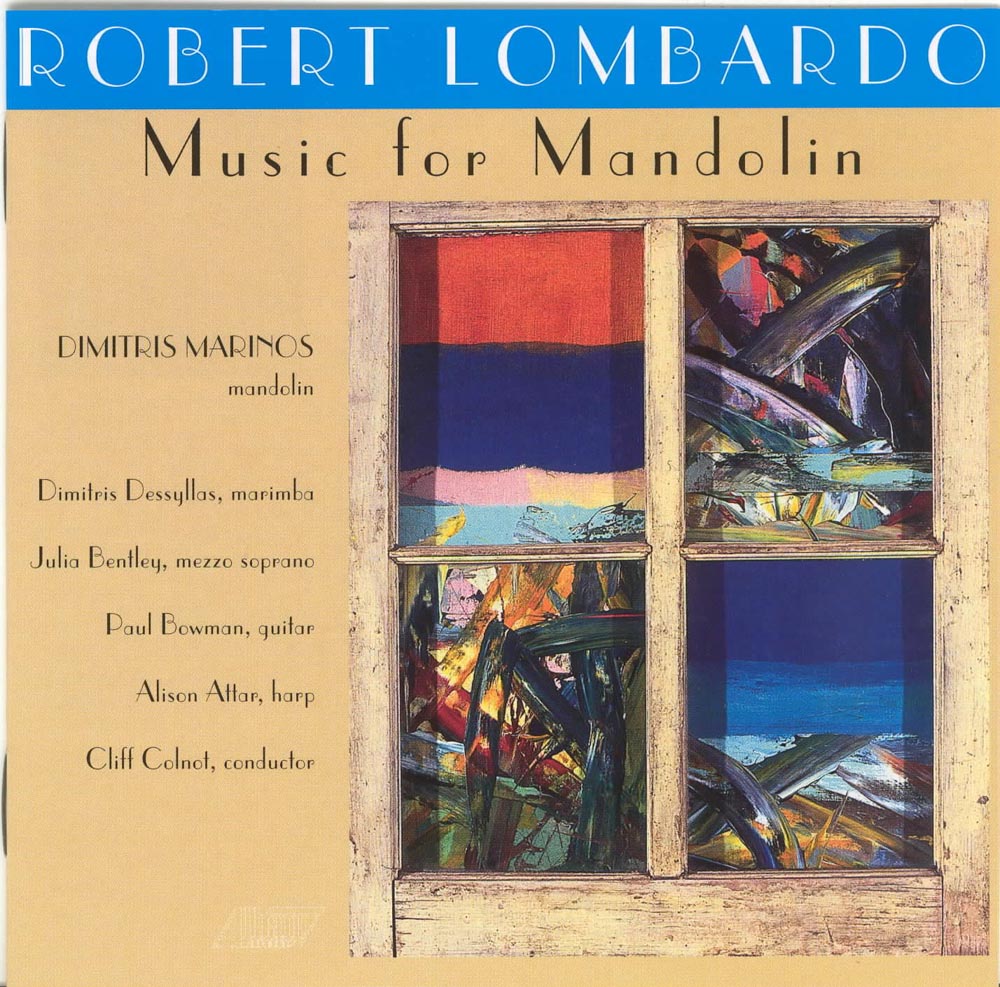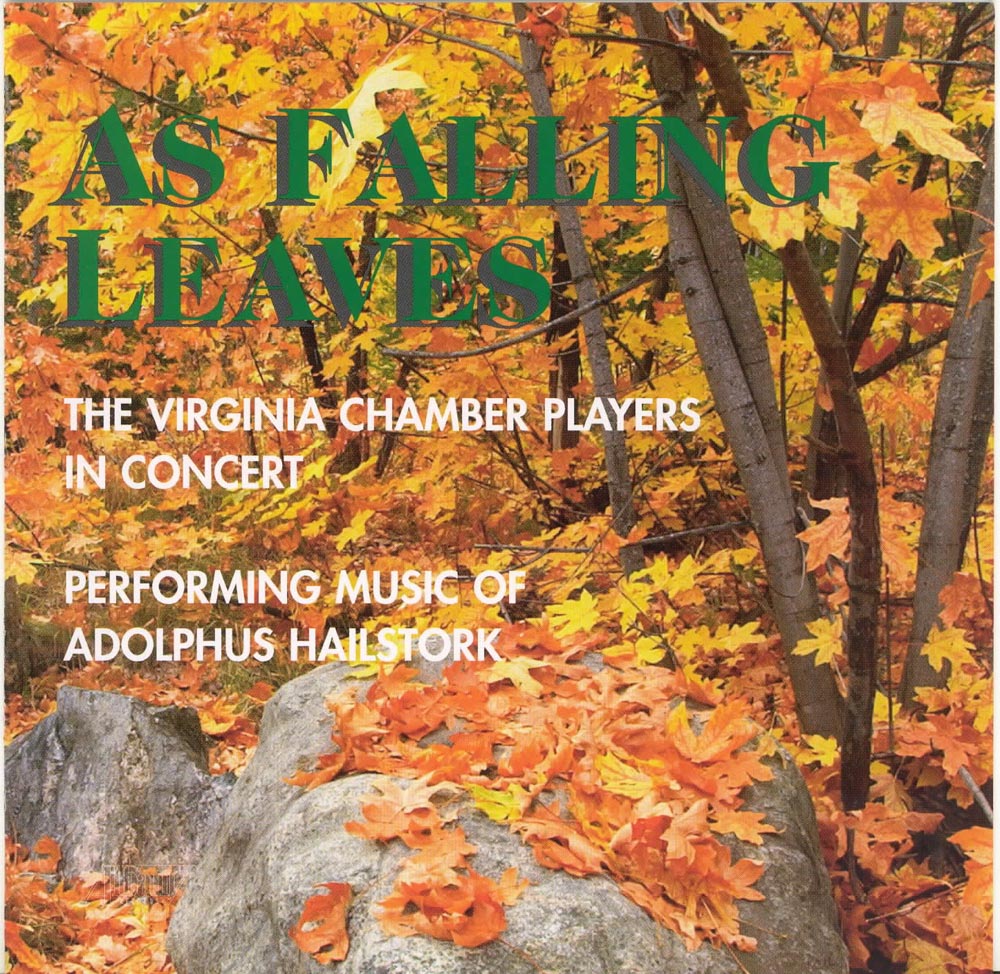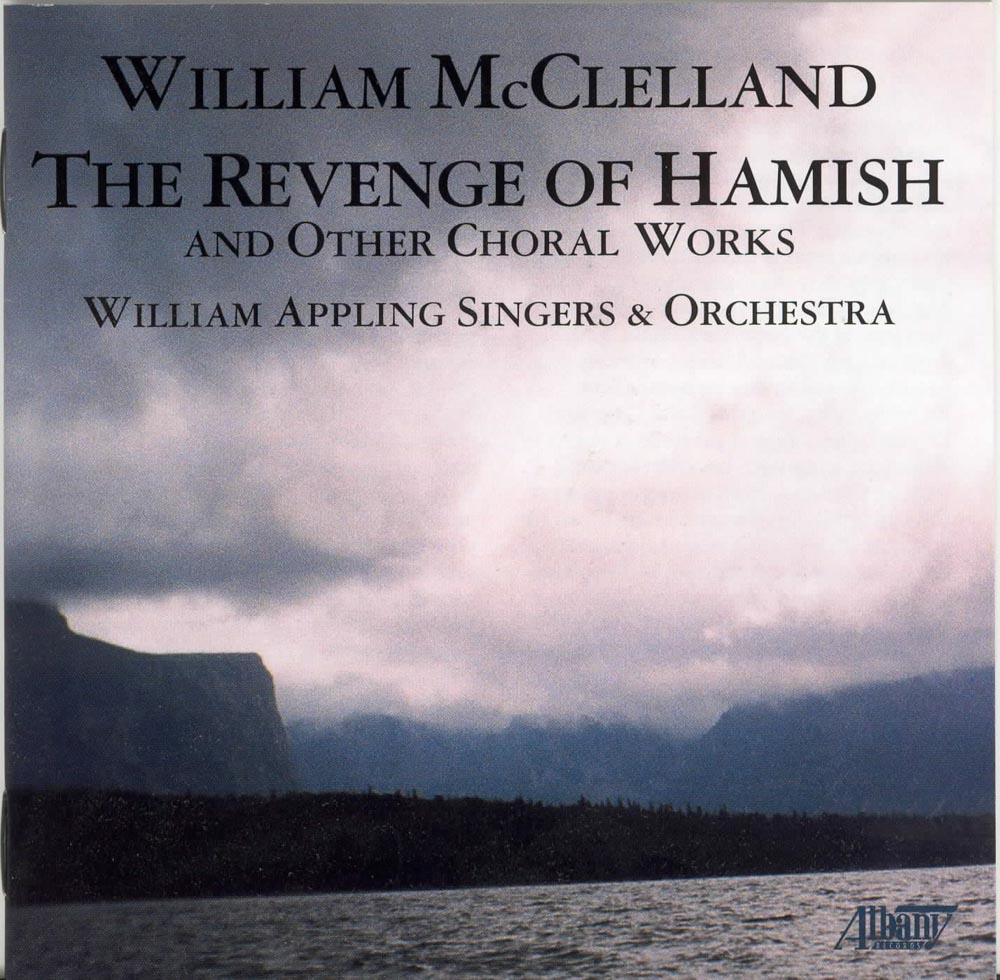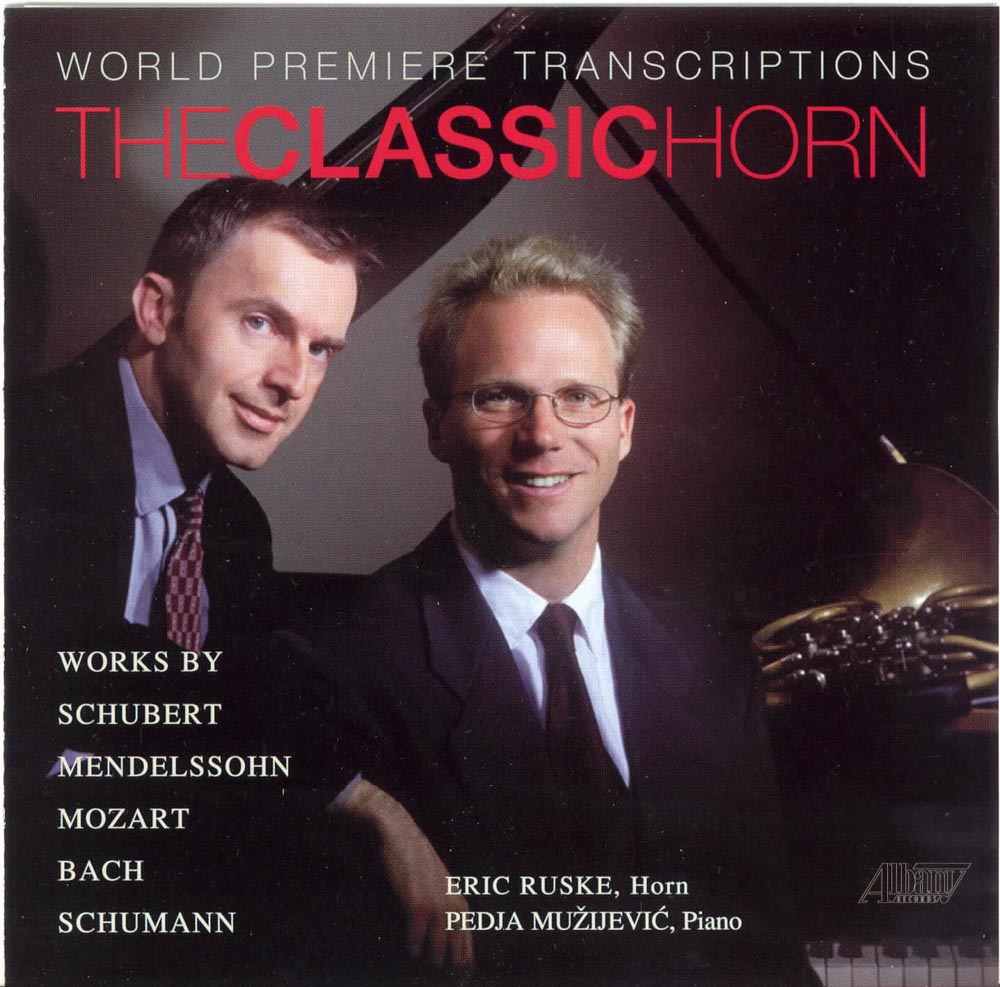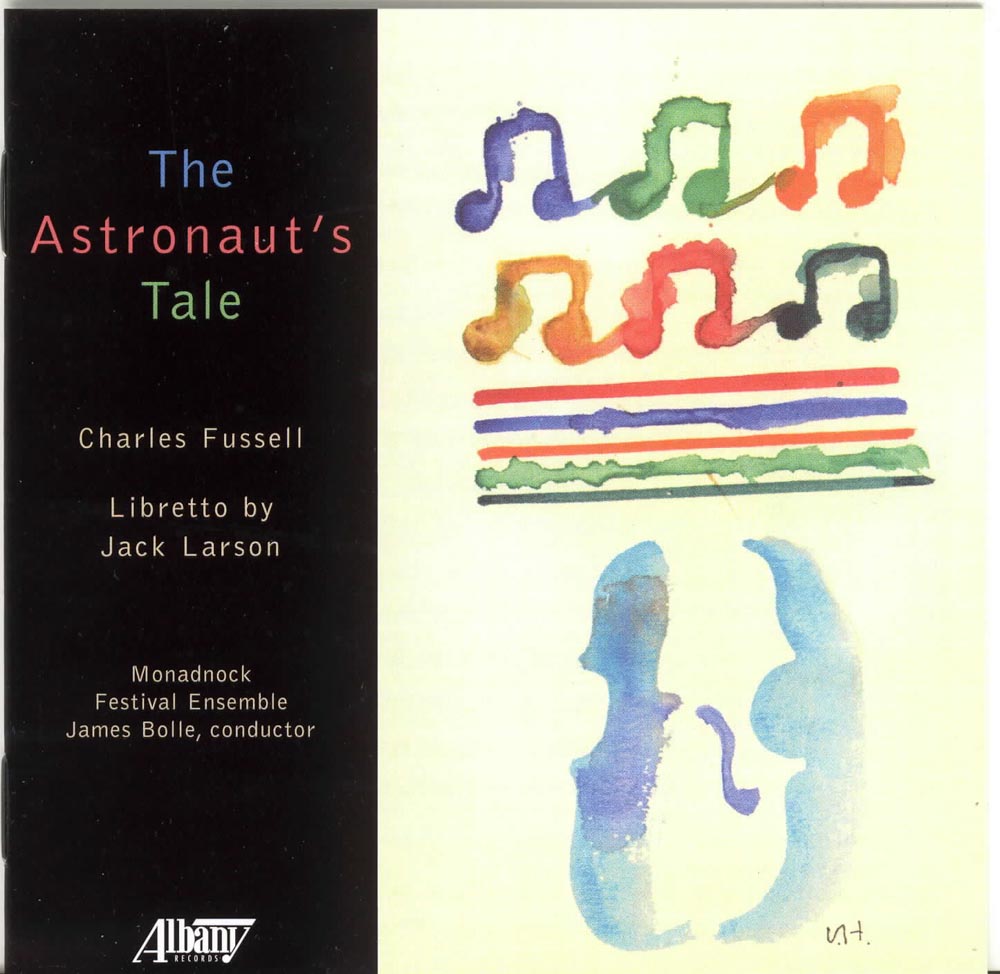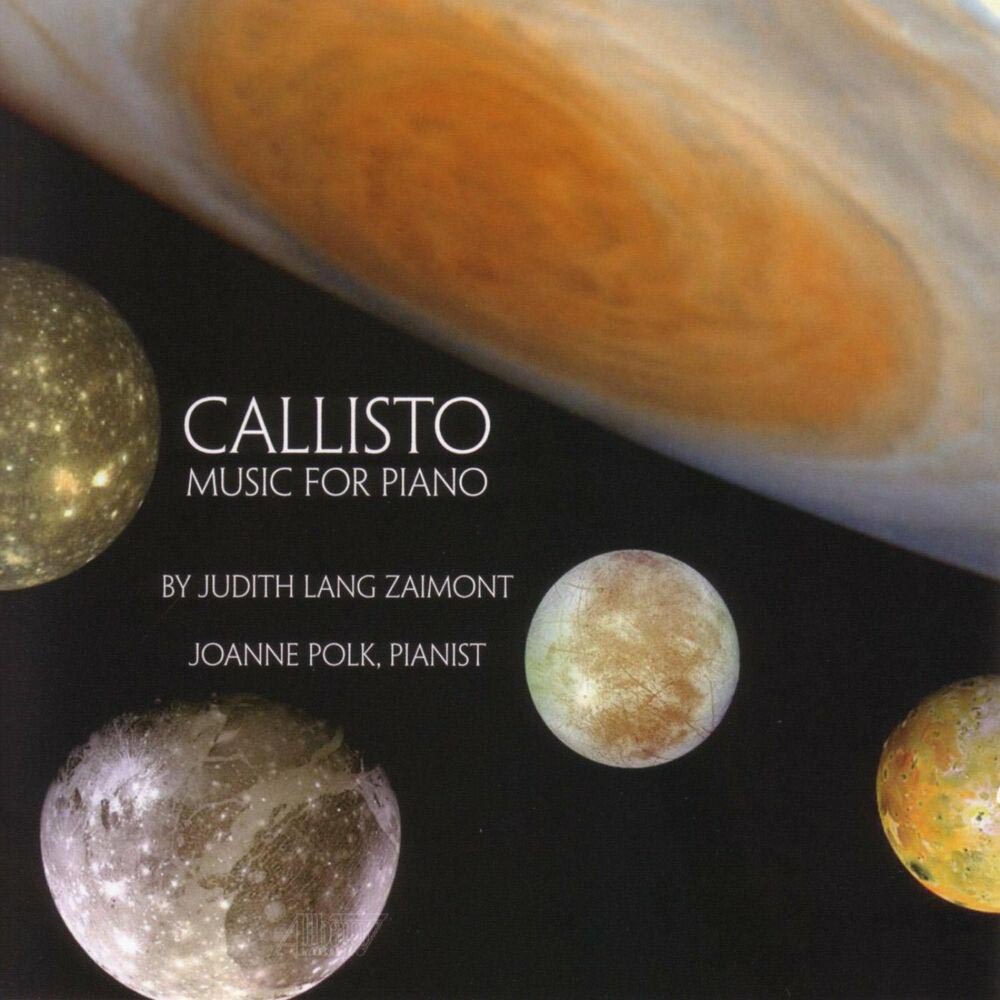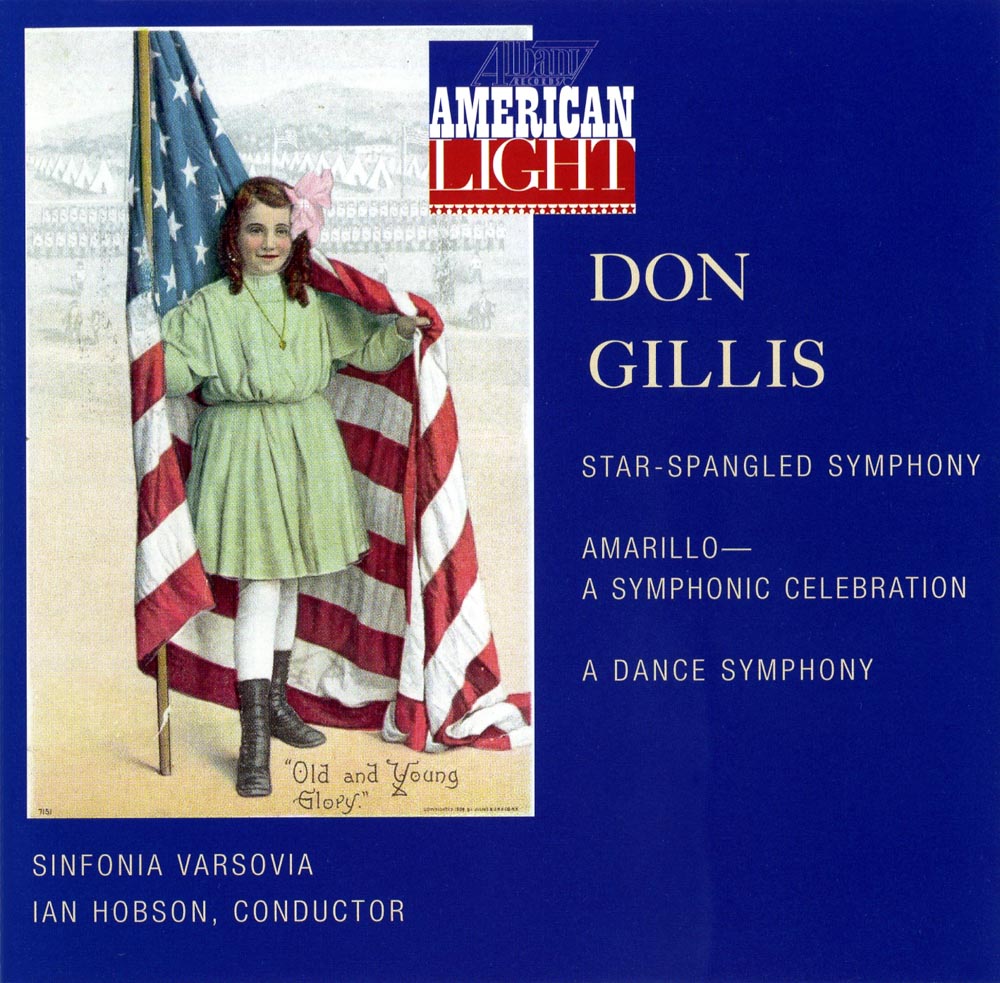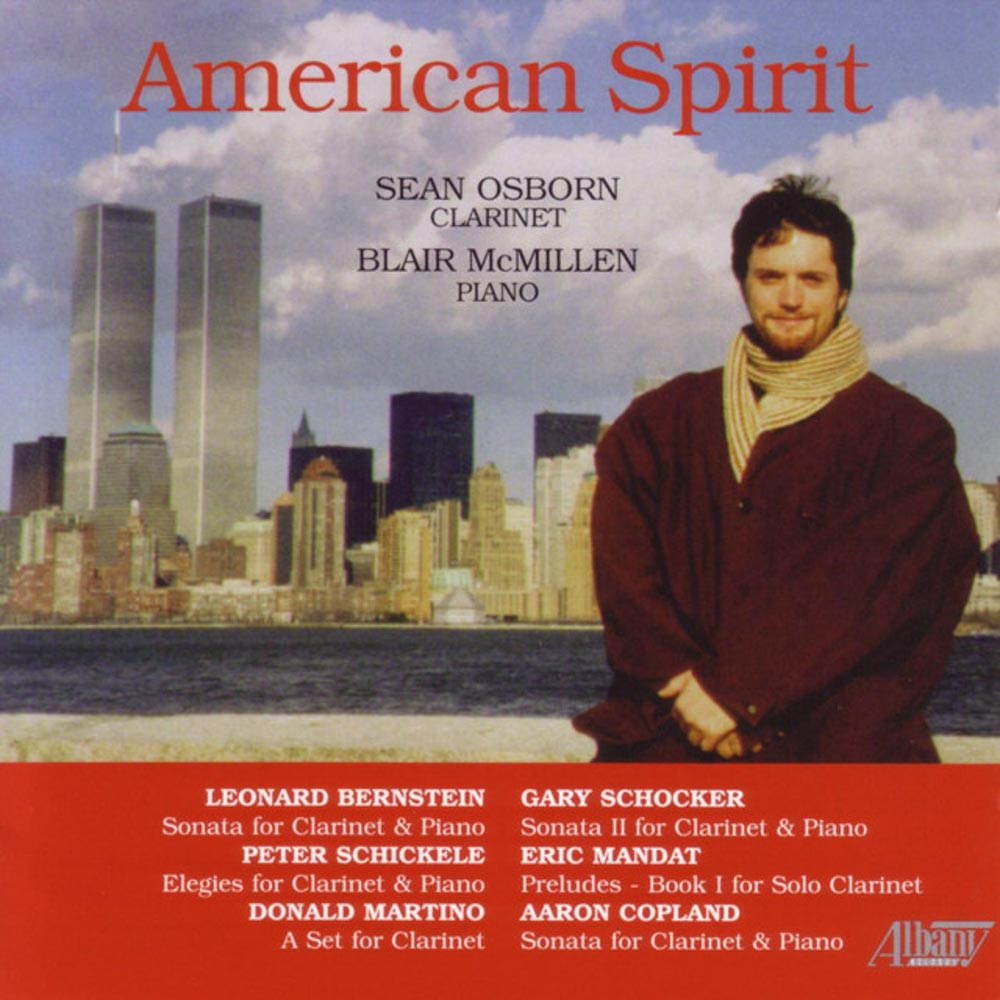Catalog #: TROY0589
Release Date: June 1, 2003OrchestralVirginia-born pianist, composer and ethnomusicologist John Powell received most of his primary music training at home, with his sister as his first piano teacher. He subsequently attended the University of Virginia and then traveled to Vienna where he studied piano and composition. He debuted as pianist in Berlin in 1907, and toured Europe extensively before World War I, returning to the United States after the War broke out. He settled in Richmond, performing extensively around the country, especially his own compositions, and eventually moved to an estate near Charlottesville. He was also an amateur astronomer, awarded honorary membership in the Societe Astronomique de France for the discovery of a comet. Powell was a respected composer, his major compositions being a violin concerto, a piano concerto, an orchestral suite, two string quartets, two violin sonatas, two collections of folk-song settings for voice and piano, four piano sonatas, three piano suites, the Rhapsodie Negre for piano and orchestra, and the Symphony in A major. Powell's most important work was probably his methodical collection of rural songs of the South. He finished his Symphony in A major in 1945, but revised it extensively in 1951 and subtitled it Virginia Symphony (actually originally Symphony on Virginian Folk Themes and in the Folk Modes). It is the result of Powell's decades of searching out old melodies still roaming the Virginia countryside - songs that were old when the first Queen Elizabeth was young. Instead of the usual major minor scales we are accustomed to, he based his music on the medieval modes of the old songs. Unfortunately, Powell's extensive collection remains unpublished so that it is almost impossible to identify the sources for the individual melodies within the Symphony. The general style of the work is grandiose, employing the late Romantic Germanic orchestration in which Powell was trained.
Catalog #: TROY0590
Release Date: July 1, 2003OrchestralThomas Sleeper enjoys as active career as both a composer and conductor. He began his professional career as a member of Fermata, a group of composer/performers who presented annual series of interdisciplinary concerts throughout the state of Texas. At age 22, he was appointed Associate Conductor of the Dallas Civic Symphony and the SMU Chamber Orchestra and Opera Theater. "Hauntingly Mysterious," "Richly Lyrical," "Soaring Melodies" - all phrases used to describe the music of Thomas Sleeper. His output includes three operas, four concerti, an orchestral suite, three orchestral song cycles, works for chorus with orchestra, two string quartets and numerous other vocal and instrumental chamber works. Sleeper has developed a unique compositional voice whose vocabulary is clearly from, but not limited to, this century. Currently he is Director of Orchestral Activities and Conductor of the University of Miami Symphony Orchestra and Opera Theater and Music Director of the Florida Youth Orchestra. About Specters John Van Der Slice writes: "The title, Specters, reflects two aspects of the work. First, it uses a "spectrum" of thirteen pitches, descending from small intervals to large, which provides the genetic material for harmonic and melodic organization. (This serves as a surrogate overtone series and betrays my admiration for the natural sonic beauty of French "Spectral" music). Secondly, the work is a kind of abstract ballet of sound involving a mysterious play of "ghostly" timbres and textures, occasionally disturbed by sudden, more violent apparitions." Frank Ticheli joined the faculty of the University of Southern California's Thornton School of Music in 1991, where he is Professor of Composition. From 1991 to 1998 he was the Composer-in-Residence of the Pacific Symphony Orchestra. He received his doctoral and masters degrees in composition from the University of Michigan where he studied with William Albright, Leslie Bassett, and William Bolcom. He began his Symphony No. 1 in the fall of 2000 in Pasadena, California, and completed it the following year at the MacDowell Colony. Its four movements represent a kind of journey of the soul - from innocence, to introspection, to darkness and finally to enlightenment.
Catalog #: TROY0591
Release Date: July 1, 2003OrchestralA self-declared adversary of what he termed "the danger of academicism and dogmatism in the musical arts," Nikolai Lopatnikoff came to the United States in 1939 by way of England, Germany, Finland, Russian and Estonia where he was born. He taught at the Hartt College of Music and Westchester Conservatory in upstate New York before settling at the Carnegie Institute in Pittsburgh. His compositions - including four symphonies, various orchestral pieces, the opera Danton and the ballet Melting Pot - were known for their melodic strength and aggressive, racy drive. That Lopatnikoff counted the melodist Borodin and the rhythmically demonic Hindemith among his early influences is no surprise. His Festival Overture was commissioned by the Pittsburgh Plate Glass Company and was dedicated to the "automobile industry of America." Born in Passaic, New Jersey, Robert Helps graduated from the Juilliard School and did postgraduate work at Columbia University and the University of California. His composition teachers included Roger Sessions and Milton Babbitt. He taught piano at Berkeley, the San Francisco Conservatory, the New England Conservatory and the Manhattan School of Music. "In a country as big as ours," says Pulitzer Prize-winning composer John Harbison, referring to his friend and one-time piano teacher, the late Robert Helps, "there are many hidden first-class artists." Just as Virgil Thomson's Four Saints was a landmark opera, his Filling Station was a ground breaking ballet - the first to showcase an American choreographer (Lew Christensen), an American dance company (American Ballet Caravan, precursor to the New York City Ballet), and American designer (the infamous painter Paul Cadmus) and a down-to-earth American setting (a gas station) - all bound up with Thomson's mock-grandiose and pop inspired music. Filling Station premiered on January 6, 1938 at the Avery Memorial Theater in Hartford, Connecticut. The version performed on this SACD is the entire ballet, uncut. "There is a degree of freshness and impetuosity that defines Kurka as an imitator of nobody. It must stand as the insufficient summation of a talent that was only beginning to find itself when Kurka died in the fall of 1957." Thus read the Saturday Review's critique of the 1959 Carnegie Hall premiere of Robert Kurka's Second Symphony. Kurka's promising career ended abruptly when he died of leukemia at the age of 35. He was born in Illinois and received his music degrees from Columbia University. Although described as largely self-taught, he did study composition briefly with Darius Milhaud and Otto Luening. He himself taught at the City College of New York, Queens College and Dartmouth. On the premiere performance of the Symphony No. 2 on July 9, 1958, the San Diego Evening Tribune reported, "It swells with the teeming rush of the metropolis. Kurka's Symphony is mindful of the best traditions of the 19th century. Everyone who has heard this wonderful work has enjoyed it and now it is your turn.
Catalog #: TROY0592
Release Date: September 1, 2003OrchestralSteve Margoshes is the composer of the international hit musical Fame. The inspirational musical about New York City's High School of Performing Arts (written with lyricist Jacques Levy) has been performed on every continent in the world in a dozen languages. This CD continues Steve's collaboration with Fame creator, David De Silva aka Father Fame, to produce a new body of work for symphony orchestra. He has composed and orchestrated these "symphonic pop" pieces under the banner Symphonic Fame. Steve's work as an orchestrator in the theater includes the Who's Tommy, Smokey Joe's CafT (the songs of Leiber and Stoller) and the Elton John/Tim Rice musical, Aida. Barnabas Kelemen was born in Budapest in 1978. He has studied at the Liszt Academy of Music in Budapest since 1990 and in 2002 was named the gold medalist at the International Violin Competition in Indianapolis. This is the first release in a new series from Albany Records called "American Light" which is classical music presented with a lighter touch. The British have been doing this sort of thing for years: presenting "light" music by serious composers and we feel that it is time we catch up. This series will present well-crafted music by serious composers whose music should appeal to a larger audience without pandering to it.
Catalog #: TROY0593
Release Date: August 1, 2003OrchestralDavid Ott's Concerto for Alto Saxophone and Orchestra was commissioned by the Knoxville Symphony Society immediately after the popular and critical reception of the Knoxville Symphony Orchestra's premiere in January 1986 of Ott's Water Garden, which the Society had commissioned to commemorate two milestones - the inaugural season of Kirk Trevor as Music Director and the 50th anniversary of the Orchestra. The new Saxophone Concerto was premiered in Knoxville on April 11, 1987 and was written for Debra Richtmeyer. David Ott is currently the Pace Eminent Scholar and Composer-in-Residence at the University of West Florida. He is the composer of four symphonies, one ballet, two oratorios, and, in his words, "overtures too numerous to count." Debra Richtmeyer transcribed the Strauss Oboe Concerto for soprano saxophone solo at the suggestion of Kirk Trevor. The transcription was premiered in November 1996 in the Czech Republic with Kirk Trevor conducting the Bohuslav Martinu Philharmonic Orchestra. Ms. Richtmeyer has said: "The transcription was quite easy to do, since the soprano saxophone and the oboe have nearly identical playing ranges. Because the oboe part had to be transposed up a full step (the soprano saxophone is in B flat compared to the oboe which is in C), the concerto's range is slightly above the normal range for soprano saxophone, which results in increased difficulty for the saxophonist. In contrast, the saxophone in general has a larger dynamic range and greater ease of playing long phrases than the oboe."
Catalog #: TROY0594
Release Date: October 1, 2003OrchestralKarl Boelter's music ranges from contemplative to visceral, from serious to playful. He was born in Milwaukee and studied composition at Ball State and the University of Michigan. He has studied with William Bolcom, Leslie Bassett and William Albright. For several years, he resided in Atlanta where he served as music curator at the High Museum of Art. This experience provided direct involvement with performances by some of the 20th century's greatest artists as well as a personal exploration into the diversity of artistic expression: classic blues and jazz, Cajun two-steps, the music of Africa, and Cowboy poetry. Dr. Boelter is professor of music composition at Oakland University, Rochester, Michigan, where he currently serves as Chair of the Department of Music, Theater and Dance.
Catalog #: TROY0595
Release Date: October 1, 2003ChamberEdwin London's music, sometimes literary or sacred, often theatrical, and at times humorous, is the product of his broad experience in diverse styles. London has been a major figure in the field of new music for more than 40 years. Best described as "a champion of new American music" he has formed two highly acclaimed ensembles: Ineluctable Modality, a new music choral ensemble in 1968, and the Cleveland Chamber Symphony in 1980. As a composer, conductor, teacher, administrator and persuasive advocate for the value of music as a civilizing force, his influence has been extraordinary. Born in Philadelphia, he began his career with characteristic disregard of rigid musical categories, as a horn player in both symphony orchestras and the Oscar Pettiford jazz band. Everything London has done in his long career has reflected his ability to move easily between the worlds of "concert hall" and "popular" music - with occasional stops at places in between.
Catalog #: TROY0596
Release Date: July 1, 2003ChamberA native of Oklahoma, George Quincy celebrates his Choctaw heritage. He holds two degrees from the Juilliard School where he later taught. He served as musical advisor to Martha Graham before going on to compose, orchestrate and conduct music for theater, dance, film, opera, television and concert. The composer writes: "When I was a boy in Oklahoma, the nights were magical, the stars incredibly bright. I used to lie in the grass and wonder. Jupiter was so bright, it invited all kinds of images. It surely was inhabited, I thought. I used to mix up myths of the West (Greece) with those of the Choctaw which surrounded me." Nina da Vinci Nicholas writing in Theater Scene writes: "Choctaw Nights sails by its own star into luscious harmonies. Melody floats above rhythmic base. Jupiter has a long lyrical line that sings and sings above a repeating rhythmic figure in the piano. Voices from Ground Zero contains a moving elegiac strain picked up by each of the instruments. A romantic yearning breaks through."
Catalog #: TROY0597
Release Date: July 1, 2003ChamberEric Moe, composer of what the New York Times calls "music of winning exuberance," was educated at the University of California at Berkeley and at Princeton University. He is currently Professor of Composition and Theory at the University of Pittsburgh, where he directs the graduate program in composition and the department's electro acoustic music studio. As a pianist and keyboard player, Moe has performed works by hundreds of composers from Anthony Davis to Stefan Wolpe. A founding member of the San Francisco based EARPLAY ensemble, he currently co-directs the Music on the Edge new music concert series in Pittsburgh.
Catalog #: TROY0598
Release Date: December 1, 2003OrchestralSteve Margoshes is the composer of the international hit musical Fame. The inspirational musical about New York City's High School of Performing Arts (written with lyricist Jacques Levy) has been performed on every continent in the world in many languages. This CD continues Steve's collaboration with Fame creator, David De Silva, to produce a new body of work for symphony orchestra. He has composed and orchestrated these "symphonic pop" pieces under the banner Symphonic Fame. Steve's work as an orchestrator in the theater includes The Who's Tommy, Smokey Joe's CafT (the songs of Leiber and Stoller), the Elton John/Tim Rice musical, Aida, and the Boy George musical, Taboo. The Romantic Suite from Fame - The Musical features the lyric and ballad side of Fame. The Dream Symphony (for piano and orchestra) is inspired by the idea of a youthful dance company performing a contemporary version of Shakespeare's A Midsummer Night's Dream. Ballade for Trumpet is an uplifting and romantic melody developed in a free-form style. It is performed by Gyorgy Geiger, Hungary's most respected trumpet soloist. This is Forever is inspired by Mildred Cram's novella, Forever (1935). In Search of Hidden Treasure is a Symphonic Adventure inspired by Paolo Coelho's enchanting novel, The Alchemist.
Catalog #: TROY0599
Release Date: November 1, 2003VocalGena Branscombe was a major figure in song writing from the turn of the century through the 1930s, the period when the solo recital was a viable venue for the professional singer. Gena grew up immersed from an early age in the musical life in the small Canadian town of Picton, Ontario. She studied with local teachers, finished high school with honors at 15, and then went to Chicago where she enrolled in the Chicago Musical College as a scholarship student of Rudolph Ganz. Basically on her own from age 16 onwards, she taught piano students and accompanied singers to supplement her income. In 1901, she joined the Musical College as a piano teacher. In 1907, she moved to Walla Walla, Washington, to establish the music department and teach at Whitman College. In 1909-1910, she studied in Berlin with Ganz and Englebert Humperdinck. She returned to America in 1910 and married and then settled in New York City where she and her husband had four daughters. She then moved to Mountain Lakes, New Jersey, where she began to participate in local choruses. She wrote much choral music and succeeded Mrs. H.H.A. Beach as the second president of the Society of American Women Composers. The 1930s marked the creation of the Branscombe Choral, a women's chorus. The chorus was finally disbanded in 1954, when Gena was 73 years old. She spent the rest of her life traveling with her daughters and composing. Her first songs were published in Chicago in the 1890s, while she was still a student. Her last song was published in 1957. Her greatest activity as a published song composer was between 1906 and 1922, after which her attention turned to choral works.
Catalog #: TROY0600
Release Date: August 1, 2003Wind EnsembleDavid Maslanka was born in New Bedford, Massachusetts and attended Oberlin where he studied with Joseph Wood. He spent a year at the Mozarteum in Salzburg and did graduate work in composition with H. Owen Reed at Michigan State University. He has served on the faculties of various universities and colleges and presently resides in Missoula, Montana. He writes: "Song Book is a set of pieces that are song-like - that is, intimate and expressive, though not necessarily quiet. The solo flute feels like a voice to me, a voice which has a complex story to tell, in the form of musical dreams. The 371 Four-Part Chorales by Bach have been a long-time focal point for my study and meditation. These chorales are the models for melodic and harmonic movement used by every beginning music theory student. I had my first encounter with them as a college freshman in 1961. Ten years ago I returned to singing and playing them as a daily warm-up for my composing. I have come to experience the chorales as touchstones for dream space. I have used many of them as the jumping off point for my own compositions. The feeling is one of opening an unmarked door and being suddenly thrust into a different world. The chorales are the doors." Daron Hagen was born in Milwaukee and studied at the Wisconsin Conservatory of Music. He continued his studies at the University of Wisconsin, the Curtis Institute of Music, and the Juilliard School, working with teachers as diverse as Ned Rorem, Joseph Schwantner, David Diamond and Witold Lutoslawski. Mr. Hagen writes: "Excited by the technical challenges that making winds and voices work well together posed, I discussed with conductor Michael Haithcock the possibility of adding to the repertoire for voice and wind ensemble. The result was The Heart of the Stranger, a song cycle for baritone voice and orchestral winds, which was first performed September 20, 1999 at Baylor University by the Baylor Wind Ensemble, Paul Kreider, baritone soloist under the direction of Michael Haithcock."
Catalog #: TROY0601
Release Date: October 1, 2003ChamberWayne Peterson was born in Albert Lea, Minnesota and has lived in San Francisco since 1960. He was awarded the Pulitzer Prize in music in 1992, crowning a distinguished career which began in 1958, with the Free Variations premiered and recorded by the Minnesota Orchestra under Antal Dorati. His catalog of more than 60 works included works for orchestra, chorus and chamber ensembles. Peterson has been professor of music at San Francisco State University for more than three decades and from 1992-94 was a guest professor of composition at Stanford University. He studied at the University of Minnesota and the Royal Academy of Music in London. Eric Moe writes: "Listening to Wayne Peterson's music is awfully rewarding. Luscious on the surface, it amply repays the most intensive listening. It's a little like taking a journey through a gorgeous Alpine landscape - you soon lose passivity and are drawn into expectation, anticipating the view of the waterfall around the bend in the road, the unfolding of the mountain's shape as it is gradually revealed, the surprise of the robin's egg blue color in the pool of melt water at the bottom of the snowfield. As with all great music, you become less of a somnolent passenger and more of a backseat driver as the music unfolds. And with repeated listenings, you can privately partake of the delight small children have in telegraphing details of the narrative to those around them."
Catalog #: TROY0602
Release Date: September 1, 2003OrchestralJunctures written in 1979 and Spirits of the Night in 1976, are alike in the sense that the musical materials used in both works are similar with the startling exception of the soprano in Junctures. But the listener will probably experience each of the works as vastly different from one another. Junctures uses the same orchestral forces as Spirits of the Night but sparingly, less overtly. The energy one senses is more subdued, with more "air" surrounding unfolding events. Sunday Silence is a 15-minute work for solo piano completed in November 1989 and premiered by Alan Mandel on October 1, 1990 at Weill Recital Hall in New York. Characteristic of Bazelon's late style, and reflecting the composer's passion for horse racing, it is named for the winner of the 1989 Kentucky Derby and racing horse of the year - Sunday Silence. Concatenations was commissioned by Frank Epstein for the New England Conservatory of Music Percussion Ensemble. The first performance was on May 1, 1977 with Frank Epstein conducting and Burton Fine, violist at Jordan Hall in Boston.
Catalog #: TROY0603
Release Date: November 1, 2003ChamberThis recording was sparked by concerts in New Hampshire and North Carolina performed by the Ciompi Quartet with guest artists, Susan Narucki and Steven Tharp. The Quartet loved working with both singers, and had the idea that a disc of music featuring a solo singer with string quartet would be both unusual and intriguing. Each of the four works on this disc is wonderfully evocative, and each exploits the medium extremely well. The title for the CD, Melancholie, is taken from the Hindemith cycle, but it also expresses the overall feeling of the four works. The two larger pieces on this CD, Hindemith's Melancholie and Vaughan-Williams' On Wenlock Edge, have interesting parallels. Both are works by young men who went on to have long and distinguished careers, both works represent a coming of age for their respective composers, and both composers must be counted among the major figures of 20th century music with many works now in the standard repertoire. Both of the other works, by Kim and Part continue the theme of melancholy.
Catalog #: TROY0604
Release Date: September 1, 2003OrchestralBorn in Paris of Czech parents, Tomas Svoboda spent the years of World War II in Boston where he began his musical education on the piano. Showing a early talent for composing, Svoboda completed his first opus, now published, at the age of 9. After his family's return to Prague in 1946, he continued his music studies entering the Prague Conservatory in 1954 as its youngest student. The premiere of the First Symphony (recorded on this CD) in 1957, performed by the Prague Symphony Orchestra conducted by Vaclav Smetacek, caused a sensation, for until Svoboda walked onto the stage to acknowledge the applause, many in the audience had not realized the 36-minute symphony had been composed by a 16 year old boy not yet even formally schooled in composition or orchestration. In 1962, after graduating from the Prague Conservatory with degrees in percussion, composition and conducting, Svoboda entered the Academy of Music in Prague. By this time, performances and radio broadcasts of his orchestral works had brought him national recognition, clearly establishing him as one of the finest young composers of his generation. In 1964, his family escaped communist-ruled Czechoslovakia and settled in the United States where Svoboda enrolled in the University of Southern California as a graduate student in 1966. His skills were already so far advanced that the department allowed him to forego the usual courses and study privately with Ingolf Dahl and Halsey Stevens, the Chairman of the Department, a composer and Bartok scholar. Stevens has written: "It was almost embarrassing to have him come to lessons with his work so completely and satisfactorily realized that it needed almost nothing in the way of criticism." After receiving a master's degree in 1969, Tomas Svoboda accepted a teaching position at Portland State University in Oregon where he taught composition and music theory. He retired from active teaching duties in June 1999.
Catalog #: TROY0605
Release Date: September 1, 2003OrchestralSteven Stucky was half-finished with a brief work for large orchestra before deciding on the French term son et lumiere for his title. Meaning "sound and light," the coinage originated in Chambord in the early 1950s to refer to outdoor evening spectacles that featured brilliant lighting effects and recorded music as the background for talks about historical buildings. In Stucky"s resulting "orchestral entertainment whose subject is the play of colors, bright surfaces and shimmery textures," the composer explains that his aim was to "recapture the Tlan and immediacy that regular meters and repetitive rhythms make possible." Today, Stucky is professor of composition and director of the new music group, Ensemble X, at Cornell. A short, highly evocative - almost mystical - work for solo English horn and chamber orchestra, "Watercolors is not about the substance of water," says the composer Gabriel Ian Gould, "as much as it is about our perception of water. It also has very little to do with watercolor painting, as the title might suggest, although there is something in this piece of the technique's soft edges and blended colors. I have attempted to represent not water itself, but rather its fluid qualities of refraction and reflection, opacity and translucence, lightness, darkness and the myriad shades and tones in between." This work won Gould his second BMI Student Composer Award. John Harbison's Cello Concerto was commissioned by the Boston Symphony Orchestra and the Chicago Symphony Orchestra. Scored for large orchestra, it features an especially varied percussion section, with an array of pitched and unpitched gongs suggestive of the sort of East Asian ensemble called a gamelan. Dedicated to and premiered by cellist Yo-Yo Ma, it debuted in Boston on April 7, 1994, with Seiji Ozawa conducting the Boston Symphony Orchestra. These first performers, according to the composer, considerably determined the concerto's character and flavor. Harbison notes that the three connected movements "all move without warning between slow and fast, expressive and virtuosic, domestic and exotic. These moods are connected by the solo cello line, which rises from the East, eventually to descend, refracted, in the West." Almost joltingly catchy, straightforward and down-to-earth after the light sensitive works of this disc's other composers, Morton Gould's Symphony No. 2 (the handwritten score gives two subtitles: "On Marching Tunes" and "Symphony on Marching Tunes") was commissioned by the Young Men's Christian Association for its hundredth anniversary and dedicated to "the Freedom-loving Youth of the World." The premiere took place during a radio broadcast by the New York Philharmonic, under Vladimir Golschmann, on June 4, 1944. An anecdote, courtesy of Gould's biographer, Peter Goodman, attaches to that first (and apparently, before the Albany Symphony Orchestra's 1999 concert, the only) performance of the complete work: Golschmann had scheduled a rehearsal of the symphony the day before broadcast and asked Gould whether he planned to attend. The composer - known for his unrelenting work ethic - surprisingly said no, claiming some pressing engagement about whose nature he was surprisingly tight lipped. After the broadcast, Golschmann met the composer at the Russian Tea Room, where Gould introduced him to his companion, his wife Shirley. "I had no idea you were married!" the conductor said. "When was the wedding?" "Yesterday," said Gould. The timing of the premiere is also interesting on the level of global, not just intimate, affairs. Two days later, in the climactic military thrust of World War Two's European theater, Allied forces would invade Normandy. This led ultimately to victory, but victory built on a mound of many, many lives. The structuring of Gould's symphony may be reflective of the true cost of triumph.
Catalog #: TROY0606
Release Date: September 1, 2003VocalThe works on this CD present a collection of songs that reflect the richness and sophistication of the American song tradition from the 19th century up through the end of the 20th century. The first half of this recording includes Battle Pieces, a song cycle written by Warren Michel Swenson; the second half contains 11 19th century songs by European and African American composers. All the works on this CD interact with two central themes: the Civil War era and the interconnections between the Black and White culture in America. In his song cycle, Swenson, a contemporary American composer, sets Herman Melville's Civil War poems, Battle Pieces and Aspects of the War. Also included on the disc are 19th century songs that come out of the minstrel and parlor song tradition. With easily available published sheet music, the dissemination of popular music in the 19th century reached a large audience that both reflected and helped shape values of that time. Considered all together, this collection presents two views, a century apart, of how music can articulate the culture and themes surrounding the Civil War era.
Catalog #: TROY0607
Release Date: September 1, 2003ChamberFor seven years, the New York-based contemporary music ensemble Sequitur has been re-defining the concert by finding new contexts for new music. Through staging events incorporating theater and dance, or producing tantalizing cabarets on themes like lust and greed, Sequitur turns the traditional sanctimonious contemporary music experience upside down. On this disc, they re-examine the contemporary American concerto. Although it dates back to Baroque composers in the late 17th century, the concerto reached its artistic pinnacle with Romantic composers of the 19th and early 20th century. But what does the concerto mean in the United States at the beginning of the 21st century, when personal freedoms are threatened both by indiscriminate acts of terrorism and by responses that many find necessary in order to preserve safety and stability? For starters, the paradigm of “us versus them” – the message behind the concertino and ripieno of the Baroque concerto grosso as well as the heroic romantic solo concerto – seems outmoded. We shun the model of a group controlling an individual, just as we shun this model turned inside out. And our view of an individual now is rarely one of hero, or anti-hero, or even of complete self-determination. All of these ideas affect the concerto of today, where the role of the soloist is not always clearly defined, where other players may rise as soloists at times and then disappear again into the fabric, where sub-groups may compete with the soloist and with each other for prominence, where the soloist may not be poised to interact and hopefully to triumph. Even the word “concerto” may be suspect: Only Elliott Carter’s work among the four on this disc employs the word “concerto” in its title.
Catalog #: TROY0608
Release Date: January 1, 2004InstrumentalSince 1998, Benjamin Coelho has been a member of the University of Iowa's School of Music faculty, where he directs the bassoon studio. As a founding member of the Manhattan Wind Quintet, Mr. Coelho performed numerous recitals and concert tours throughout the United States. He has commissioned, performed, and recorded many works by American and Latin American composers, some of which are included on this recording. Before coming to Iowa, Mr. Coelho was the Vice-Dean and Bassoon Professor at the Federal University of Minas Gerais (Brazil). He also worked extensively as a performer in his native Brazil, holding principal positions with symphony orchestras in Rio de Janeiro, Campinas, and Belo Horizonte. In the United States, Mr. Coelho has played with the Waterloo/Cedar Falls Symphony, and the Camerata Chamber Orchestra. Currently, he performs as the principal bassoon with the Cedar Rapids Symphony and the Iowa Woodwind Quintet. He is also a member of the Wizards, A Double Reed Consort. Mr. Coelho received degrees from Tatui Conservatory (Brazil), Purchase College and the Manhattan School of Music, and is working on his Doctorate of Music at Indiana University.
Catalog #: TROY0609
Release Date: November 1, 2003ChamberArthur Kreiger holds degrees from The University of Connecticut and from Columbia University. His teachers have included Hale Smith, Vladimir Ussachevsky, Chou Wen-Chung and Mario Davidovsky. His catalog contains pieces for orchestra, chorus, mixed chamber ensembles, piano, solo voice and the electronic medium. He is presently on the faculty of Connecticut College in New London. This recording collects compositions with electronic sounds from a 23 year period (1974 to 1997) of the composer's life. The music was created during the composer's 27 year association with the Electronic Music Center of Columbia University, where he worked as a student, technical assistant and teacher. Although the technological means of producing electronic sounds has evolved rapidly over the last half century, Kreiger's commitment to the formation of tightly interlocking mosaics of electronic and acoustic sounds has never wavered. Yet existing simultaneously with the frequent partnerships between electronic and acoustic means is an idiomatic electronic language that distinguishes itself from the acoustic instruments, enveloping those instruments in a universe of exotic sounds.
Catalog #: TROY0610
Release Date: October 1, 2003ChamberElizabeth Hoffman holds degrees in music from Swarthmore College, SUNY Stony Brook, and the University of Washington. She studied composition and analog electronic music with electronic music pioneer Bulent Arel at Stony Brook. During her doctoral composition studies at the University of Washington, she began using computers for musical ends. Elizabeth Hoffman's recognition includes awards from the Seattle Arts Commission; American Composers Forum Jerome Foundation; Bourges International Competition Residence prize; and Prix Ars Electronica Mention. She is currently Associate Professor in the Faculty of Arts and Science, Department of Music at New York University, where she also directs the Washington Square Computer Music Studio.
Catalog #: TROY0611
Release Date: October 1, 2003ChamberRobert Lombardo was born in Hartford, Connecticut to Sicilian immigrants. He graduated with a master's degree in composition from the Hartt School of Music where he studied with Arnold Franchetti. He was awarded a Ph.D. in composition from the State University of Iowa. Lombardo holds the title of Professor Emeritus from Roosevelt University where he was Professor of Theory and Composition and Composer-in-residence from 1965 until 1999. The composer writes: "Although the mandolin has occasionally been used by composers in contemporary literature, e.g., Schoenberg, Stravinsky and Crumb, I always thought of the instrument in the folk category. About a dozen years ago, my perception of the use of the mandolin changed. In 1991, Dimitris Marinos, a student who recently arrived from Greece, came to my studio at Roosevelt University for his first composition lesson. He had a mandolin case tucked under his arm. After his lesson, I was curious and asked him if he wouldn't mind playing his mandolin for me. I guess I expected him to play a folk tune, and was pleasantly surprised - amazed would be a better word - when he played a very complex work replete with multiple stops, fast chromatic passages that covered the entire range of the instrument - in an apparent effortless fashion. I was captivated by this young man's musicality and virtuosity. After he showed me some of the instrument's technical capabilities, I thought about writing a short composition for him." That is the origin of how the compositions that appear on this disc came about.
Catalog #: TROY0612
Release Date: January 1, 2004ChamberHailstork received his doctorate in composition from Michigan State University, where he was a student of H. Owen Reed. He had previously studied at the Manhattan School of Music under Vittorio Giannini and David Diamond, at the American Institute at Fontainebleau with Nadia Boulanger, and at Howard University with Mark Fax. Dr. Hailstork has written numerous works for chorus, solo voice, various chamber ensembles, band and orchestra. Dr. Hailstork was commissioned by the Barlow Endowment for Music to write Festival Music for the Baltimore Symphony. Other performances of his music have been conducted by Lorin Maazel, Daniel Barenboim and Kurt Masur. In 1999, the composer's Second Symphony (commissioned by the Detroit Symphony Orchestra), and his second opera, Joshua's Boots (commissioned by the Opera Theatre of St. Louis, and the Kansas City Lyric Opera), were premiered. In 2002, James Conlon conducted his oratorio Done Made My Vow at the renowned Cincinnati May Festival. Currently, Hailstork is Eminent Scholar and Professor of Music at Old Dominion University in Norfolk, Virginia.
Catalog #: TROY0614
Release Date: November 1, 2003ChoralWilliam McClelland grew up near Goodison, Michigan, and received a degree in composition from the Longy School of Music in Cambridge, Massachusetts. His works have been commissioned and presented by ensembles and organizations throughout the US and internationally. As a performer McClelland has played keyboards for productions at the New York Shakespeare Festival and Dance Theater Workshop, and has premiered works by composers including Carl Ruggles and John Cage. He has taught piano at the University of Massachusetts (Boston) and was director of the music program at the Elizabeth Seeger School in New York City. He is leader of the jazz septet The Feetwarmers for which he writes, plays piano and sings. He lives in North Bergen, New Jersey, and, in addition to music, has been active in many environmental efforts.
Catalog #: TROY0615
Release Date: October 1, 2003InstrumentalHorn soloist Eric Ruske has established himself as an artist of international acclaim. Named Associate Principal horn of the Cleveland Orchestra at the age of 20, his impressive solo career began when he won the 1986 Young Concert Artists International Auditions, First Prize in the 1987 American Horn Competition, and in 1988, the highest prize in the Concours International d'Interpretation Musicale in Reims, France. Of his recording of the complete Mozart Concerti with Sir Charles Mackerras and the Scottish Chamber Orchestra, The New York Times stated, "Mr. Ruske's approach, firmly positioned with the boundaries of balance, coherence and good taste that govern the Classical Style, enchants by virtue of its confidence, imagination and ebullient virtuosity." A member of the faculty of Boston University since 1990, Mr. Ruske also directs the Horn Seminar at the Boston University Tanglewood Institute.
Catalog #: TROY0616
Release Date: November 1, 2003OperaComposer Charles Fussell was Artistic Director of New Music Harvest, Boston's first city-wide festival of contemporary music and Co-Founder and Director of the New England Composer's Orchestra. He is currently a member of the Composition faculty at Boston University. The composer writes: "The Astronaut's Tale was mostly written during a generous two month fellowship at Yadoo in Saratoga Springs in June and July of 1996, and was completed the following winter. It is conceived as a numbers-opera; arias, duets, trios, with preludes and interludes, all connected by a narrator. The story traces a young man's life from his first experience of loss, his dog killed by a car, the appearance of a mysterious Einstein-like guide, his youthful desire to become an astronaut, marriage, and the fulfillment of his ambition. The setting is our own time with its confrontation of science and religion. The opera concludes with a meditation on the nature of the cosmos and our experience of life and death within."
Catalog #: TROY0617
Release Date: November 1, 2003InstrumentalComposer Judith Lang Zaimont is internationally recognized for the expressive strength, color and dynamism of her distinctive style. Many of her 100 works are prize-winning compositions; these include three symphonies, chamber opera, oratorios and cantatas, music for wind ensemble, a wide variety of instrumental and vocal chamber works for varying ensembles, and solo music for string and wind instruments, piano, organ, and voice. Her major works for piano are primarily recent, most of them composed since 1998. This is perhaps unusual in that the piano is her own instrument (she began studying at the age of five), and one might have reasonably expected considerable creative attention on her part from the very first to an instrument she knows so well.
Catalog #: TROY0618
Release Date: November 1, 2003OrchestralFor those of us involved in Albany Records, we feel that the music of Don Gillis is really "cross-over" music - music that can indeed make the interested listener cross-over to our side of the street where those of us are found who enjoy "serious" classical music. Real "cross-over" classical music is music that can be enjoyed by all who love serious music. There ARE many sides to classical music: Schoenberg and Charles Wuorinen are one side, Beethoven and Brahms are another and Don Gillis is another. They ALL can be loved by the serious listener! American Light represents music by composers we feel are legitimate composers of lighter music or music that will appeal immediately to a larger audience. Don Gillis knew the craft. He could make an orchestra sound as good as anyone. Toscanini knew this. This is why he hired him as the arranger for his NBC Orchestra. He could create memorable tunes with the best of them; tunes that would stick with you in your mind; tunes you would want to hear over and over again. And Gillis had his own unique character more so than so many other composers. You hear a piece of music by Gillis, you know it is by Gillis from almost the first measure. Actually, this is the second volume of the music of Don Gillis on Albany Records. Volume 1 is on Albany (TROY391) and is conducted by David Alan Miller with the Albany Symphony Orchestra. If you know that volume than you know what to expect from Gillis' music. If you do not, get this volume and go back and get the first one. Happily, here is music that is infectious, music that truly belongs to the "cross-over" genre in the best sense of the word.
Catalog #: TROY0619
Release Date: December 1, 2003ChamberWhat is the American Spirit? How can a country of such diversity and individualism have a national spirit? Perhaps the diversity and individualism ARE the American Spirit. That is certainly true in American music: everything from European influenced classicism to home-grown fusions of jazz or rock. This CD represents a great many different American styles spanning the twentieth century, from two of her greatest early masters, through mid-century serialism and pop-influence, to late century experimentation and codification. Sean Osborn has traveled the US and Europe as soloist and traveled the world during his eleven years with the Metropolitan Opera Orchestra. He has also performed as principal clarinet with the New York Philharmonic, Pittsburgh Symphony, the Seattle Symphony and the American Symphony Orchestra. The New York Times dubbed him "...an excellent clarinetist," and the Boston Globe called him "...a miracle." Making his recital debut at the Kennedy Center at the age of 17, Sean is a top prize winner in both the ARTS Competition and the International Clarinet Society Competition, and in 1984 was named a Presidential Scholar in the Arts. He studied at the Eastman School and the Curtis Institute of Music. He is also a respected teacher and has given numerous master classes at such institutions as Rice University, Baylor University, the University of Puget Sound and two at the Manhattan School of Music. He is also an award winning composer.
Catalog #: TROY0621-22
Release Date: January 27, 2004OperaThe creation of Carlisle Floyd's Of Mice and Men was a long, rocky process - no other opera in this composer-writer's canon so exemplifies his almost mystical belief that its final form seemed to exist long before he uncovered it. "I never revised an opera more," Carlisle Floyd recalled as Of Mice and Men was enjoying a flurry of revivals at the turn of the new century, three decades after its premiere in Seattle in 1970. "I played the first act for Kurt Adler at the San Francisco Opera. He turned it down, for reasons I never understood, but I also completely rewrote the first act after that. Two years' work gone. I completely started over. New libretto, new music. It's the only time I ever did that. One thinks one knows what makes a workable libretto, and then it's clear that nothing works. In the next three years, I was able to salvage some of that original music. Maybe 25% of it found its way back into the completed score." Coherent revision is possible only within a musical language that fully reveals its composer's confidence. Remember, he was writing during the high tide of American serialism and academic snobbishness. His music was none of that. His rhythms evoke an agrarian life and his musical textures imply open space. Wide intervals sing of loneliness, and his tart instrumentation throws edgy shadows around any suggestion of joy or hopefulness. That music tantalizes with its rich references. But reference to what? No true folk tunes have been adapted; no real country dances echo in the background. Yet the music implies all that while finding its own way between traditional songs of the American earth and those craftily composed to incorporate the essence of native music. Carlisle Floyd's Of Mice and Men stands as complete and whole as a crystal sphere - seamless, polished, able to reflect inner and outer color. The intriguing creative process that went so wrong at the outset, found that perfect sphere and left us Of Mice and Men.
Catalog #: TROY0623-24
Release Date: January 1, 2004OperaThe composer writes: "Somerset Maugham's short story Rain was suggested to me for an opera by Bob Brewer, who had been the stage director for the premieres of two of my operas in New York, Mary Dyer and Abigail Adams in which my wife Lynn had sung the title roles. Bob knew what kind of a dramatic story I would be attracted to and what Lynn's vocal and dramatic gifts would bring to the role of Sadie Thompson. I was fortunate to have been invited in the early 1990s to participate in an ASCAP four-week film scoring workshop in Los Angeles, getting insight into the focus and condensation of musical effects that later the Rain libretto demanded. I was also writing this opera for my wife who has vast operatic experience around the world, and had sung Minnie, the miners' saloon keeper in Puccini's Girl of the Golden West at the Metropolitan and elsewhere, a perfect background for her to give life to Sadie Thompson who struggles to extricate herself from her barroom world. The premiere of this opera took place in Alice Tully Hall in February, 2003."
Catalog

©2024 Albany Records. All rights reserved. | Privacy Policy | Website by PARMA Creative.
